70 Books to Read for National Arab American Heritage Month--NAAHM
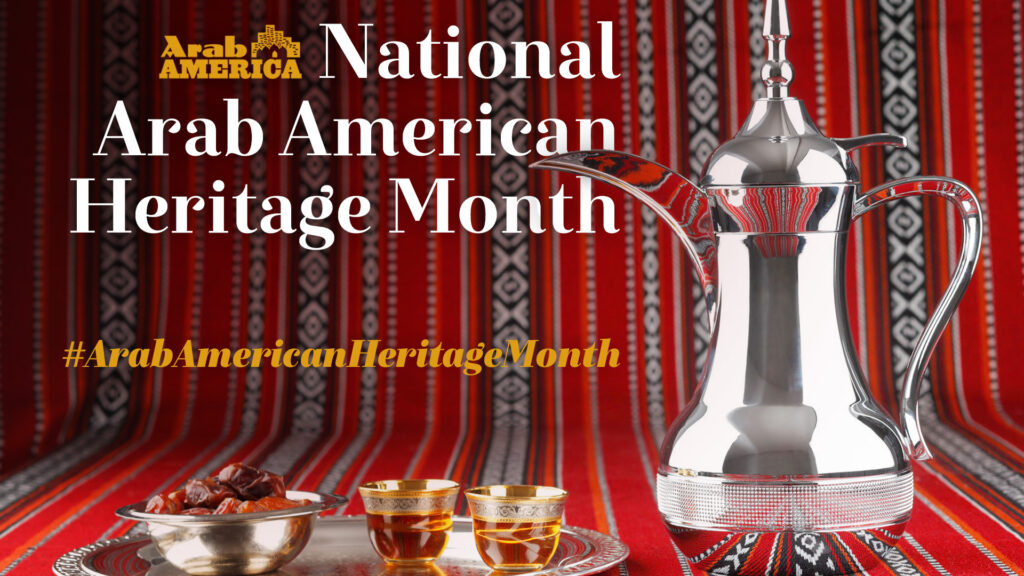
Are you searching for the perfect book to read for Arab American Heritage Month (NAAHM)? This curated list highlights works by American authors of Arab descent, offering something for everyone. Whether you’re looking for a compelling novel for your book club, an inspiring memoir for your classroom, or a moving collection of poetry, these books provide valuable insights into the Arab diaspora. Arab America contributing writer, Arwa Almasaari, presents a diverse, alphabetically organized selection to engage and inspire all readers.
Fiction
Ameen Rihani – The Book of Khalid (1911)
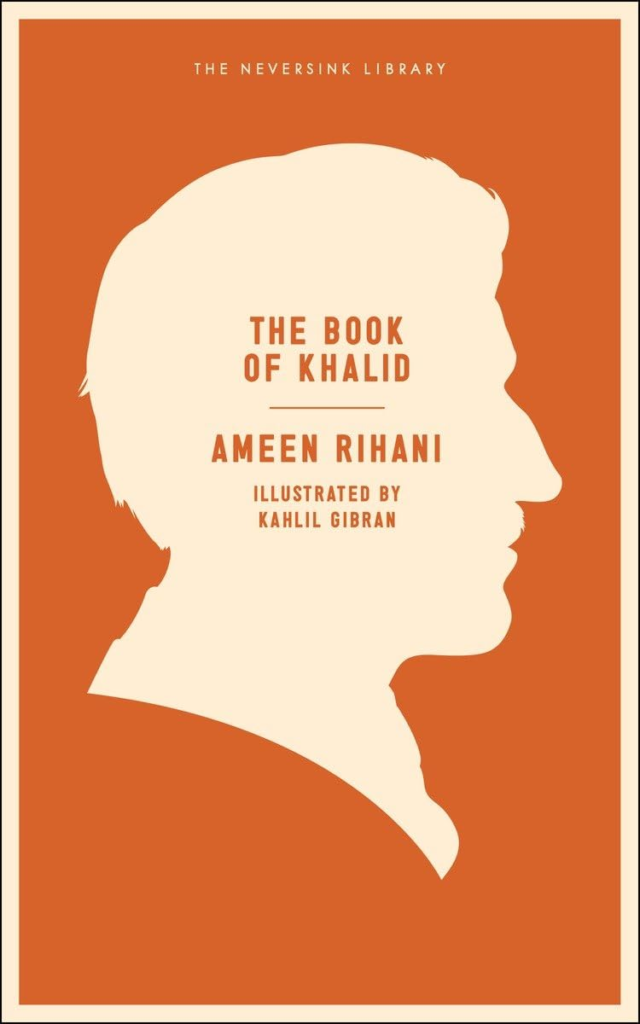
Ameen Rihani’s The Book of Khalid is the first novel in English by an Arab American. It follows the journey of two young Lebanese immigrants, Khalid and Shakib, as they seek fortune in turn-of-the-century New York before returning to their homeland. Blending humor, philosophy, and cultural critique, the novel explores identity, East-West relations, and the challenges of assimilation. With illustrations by Kahlil Gibran, it remains a pioneering work of Arab American literature.
Chelsea Abdullah – The Stardust Thief (2022)
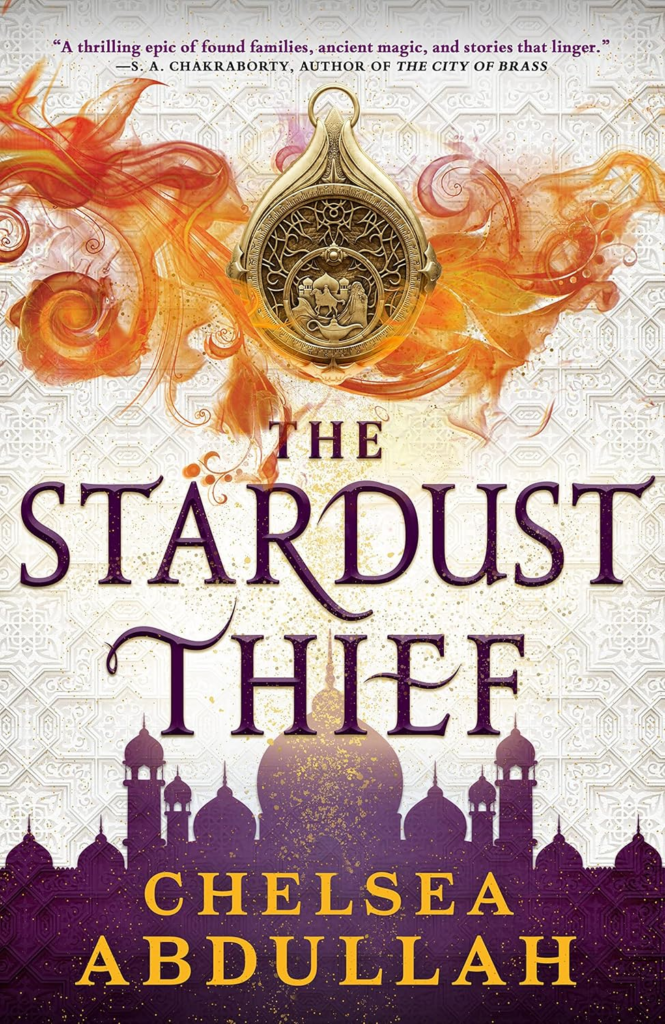
The Stardust Thief is a fantasy novel inspired by One Thousand and One Nights, following a merchant who trades in illegal magic, a reluctant prince, and their search for a powerful artifact. As they navigate a world where myths and reality blur, they encounter hidden dangers, ancient secrets, and shifting allegiances. The story explores themes of identity, power, and the influence of stories on fate.
Diana Abu-Jaber – Arabian Jazz (1993)
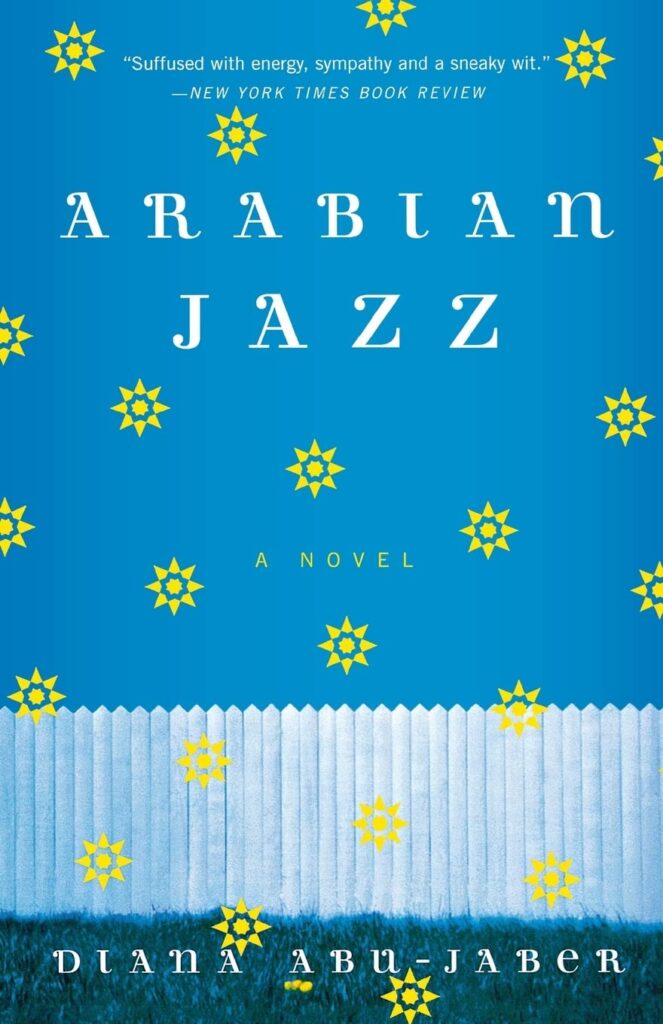
Arabian Jazz is a novel about family, identity, and generational conflict, set in a small upstate New York town. It follows the Jordanian-American Ramoud family, particularly Jemorah, who struggles with questions of belonging and tradition as her well-meaning but persistent aunt pressures her to marry. Blending humor and poignancy, the novel explores the tensions between heritage and self-discovery, with richly drawn characters and a sharp, lyrical voice.
Diana Abu-Jaber – Crescent (2003)
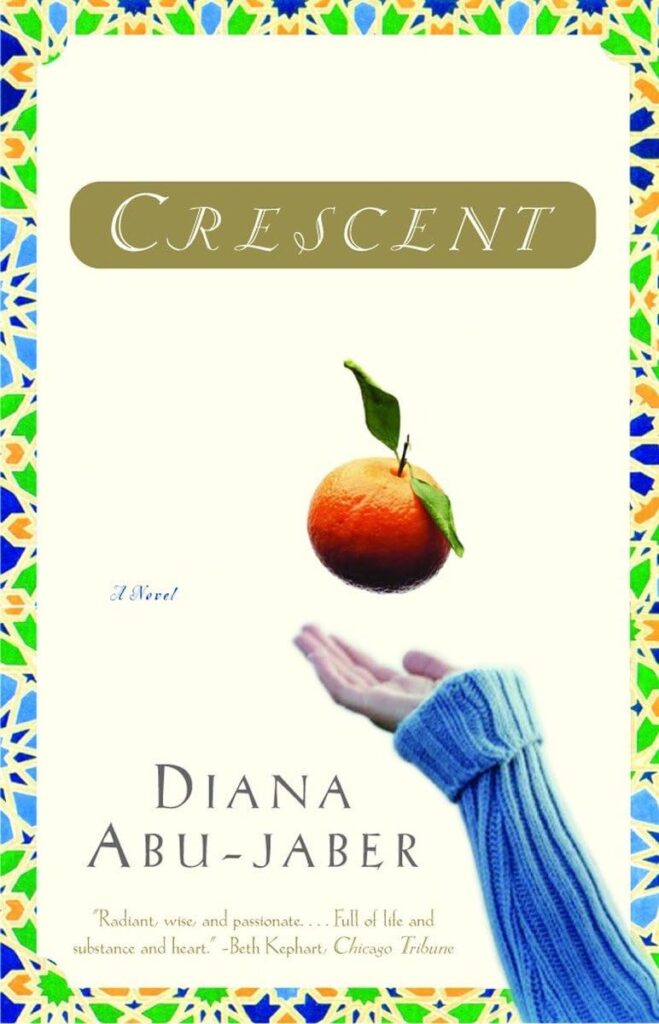
Crescent is a story set in the Arab American community of Los Angeles. The novel follows Sirine, a 39-year-old chef who lives with her Iraqi-immigrant uncle and finds solace in cooking until she meets an alluring Arabic literature professor. As their relationship deepens, Sirine grapples with questions about her identity and past, stirred by both love and the flavors of her Middle Eastern heritage.
Dima Alzayat – Alligator and Other Stories (2020)
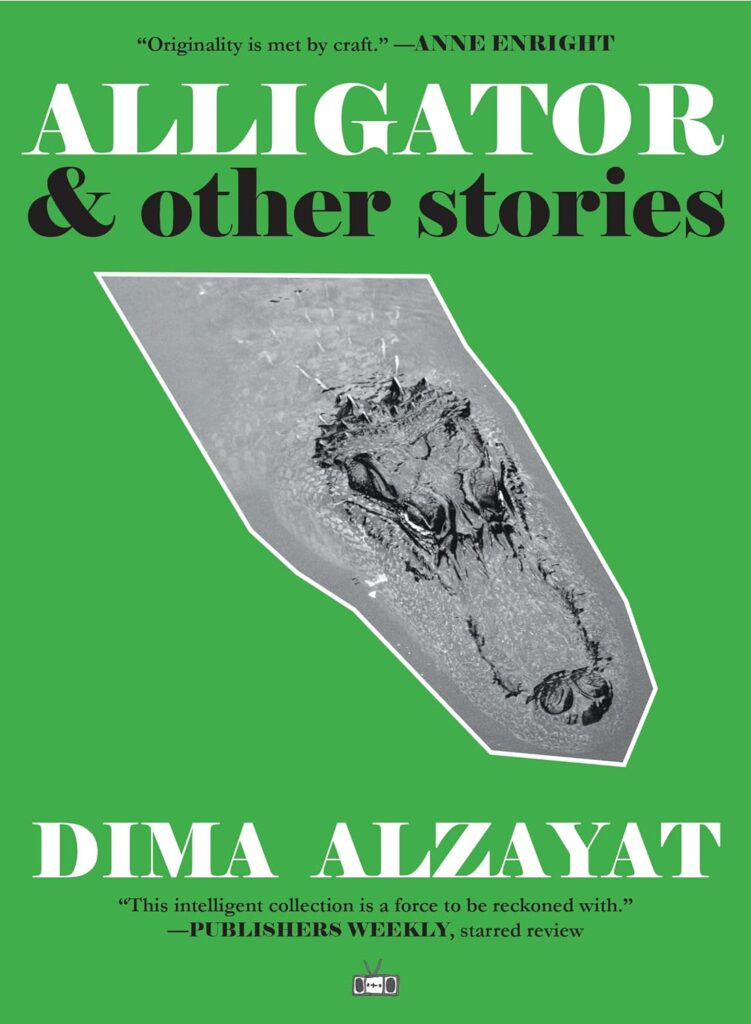
Alligator is a collection of short stories that explore themes of displacement, identity, and intergenerational trauma. From the poignant “Ghusl,” about a woman performing burial rites for her brother, to the historical depth of “Alligator,” which reimagines the lynching of a Syrian immigrant couple in Florida, Alzayat’s writing captures the complexities of belonging in the modern world.
• Eman Quotah – Bride of the Sea (2021)
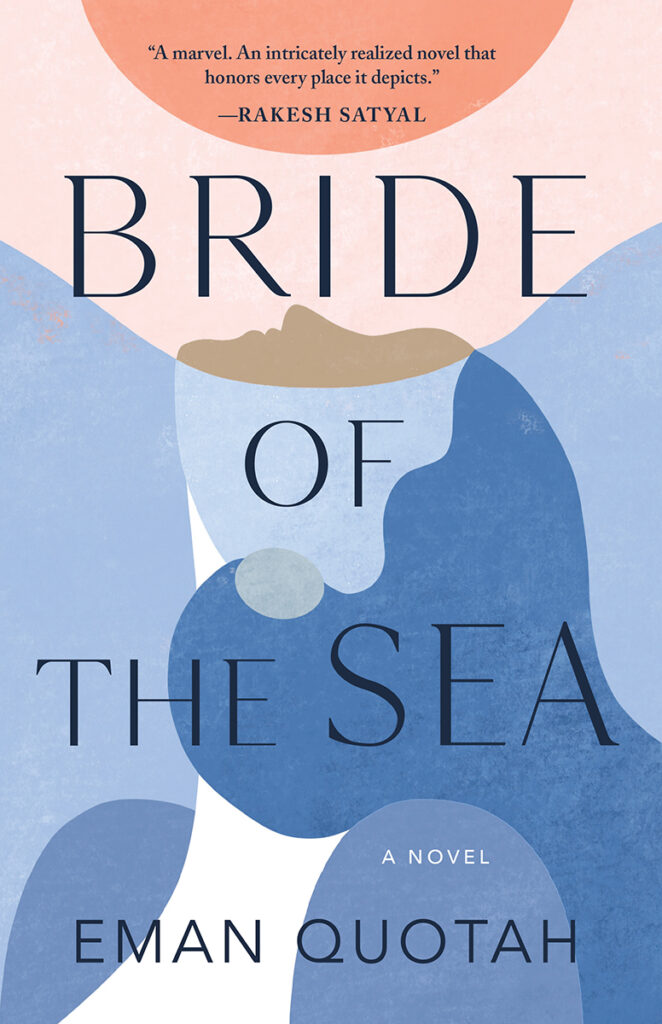
Bride of the Sea delves into themes of family, identity, and belonging. Set against emotional and cultural tensions, it follows the unraveling marriage of Muneer and Saeedah after the birth of their daughter, Hanadi. As Hanadi grows up, she navigates the complexities of her dual cultural identity, reflecting on the forces that shape who she becomes. The novel explores love, loss, and the search for home.
Etel Adnan – Sitt Marie Rose (1977)
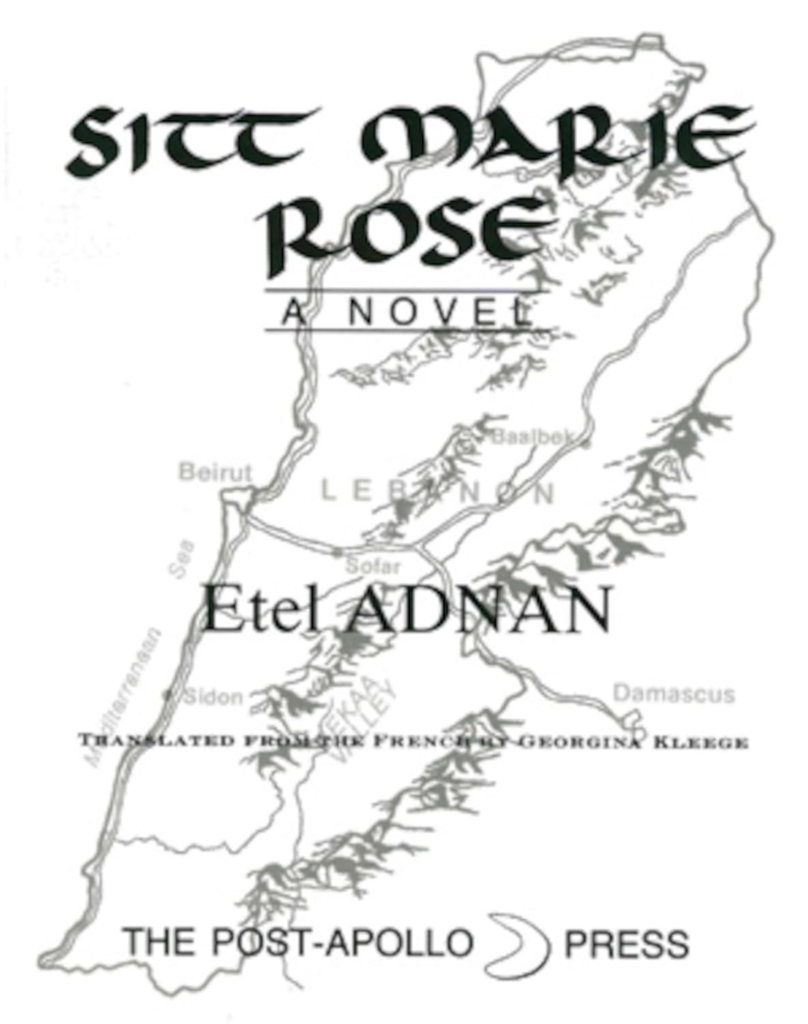
Sitt Marie Rose, translated from French by Georgina Kleege, is a novel set during the Lebanese Civil War. It tells the story of a woman abducted by militiamen, exposing the sectarian divisions and violent ideologies that fuel the conflict. With its innovative narrative style and sharp political critique, the novel has become a classic of war literature.
Hala Alyan – Salt Houses (2017)
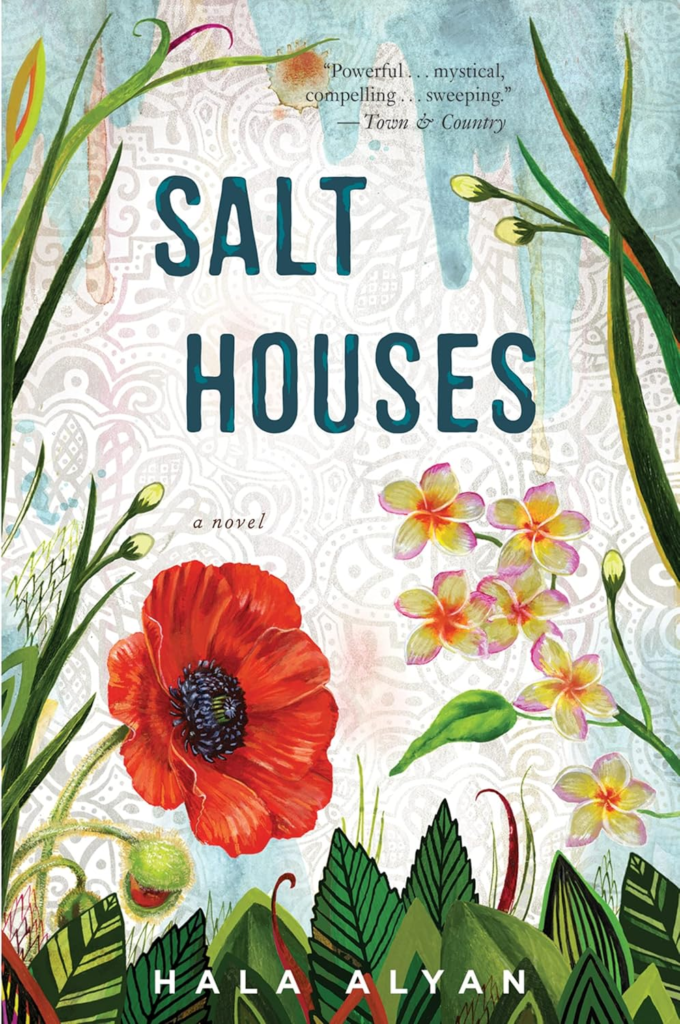
Salt Houses is a multi-generational novel tracing the displacement of a Palestinian family over decades. Beginning with Salma’s quiet premonition on the eve of her daughter’s wedding, the story follows Alia and her loved ones as they are repeatedly uprooted—from Nablus after the Six-Day War to Kuwait, and later to Beirut, Paris, and Boston. The novel explores the lasting effects of war, exile, and identity, offering an intimate look at the struggles of assimilation and the longing for home across generations.
Hedy Habra – Flying Carpets (2012)
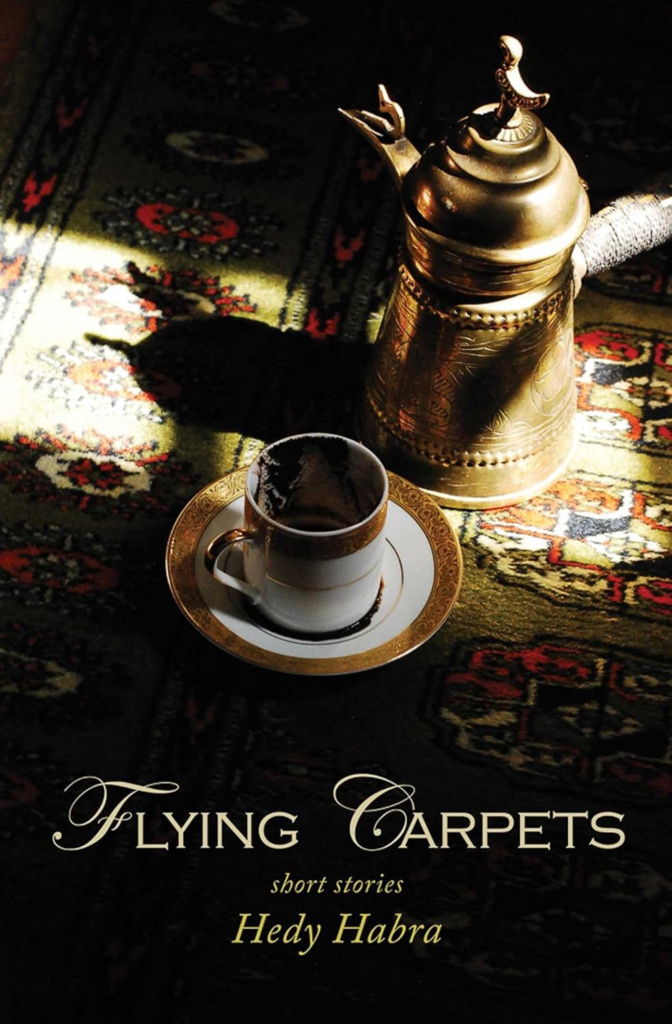
Flying Carpets by Hala Habra is a collection of 21 stories that blend memory and imagination to evoke the author’s childhood in Egypt and Lebanon. Spanning from 1936 to the late 1970s, the stories capture voices, places, and moments from a disappearing way of life. As the collection progresses, it moves beyond time and space, embracing surreal and dreamlike elements.
Hisham Matar – Anatomy of a Disappearance (2011)
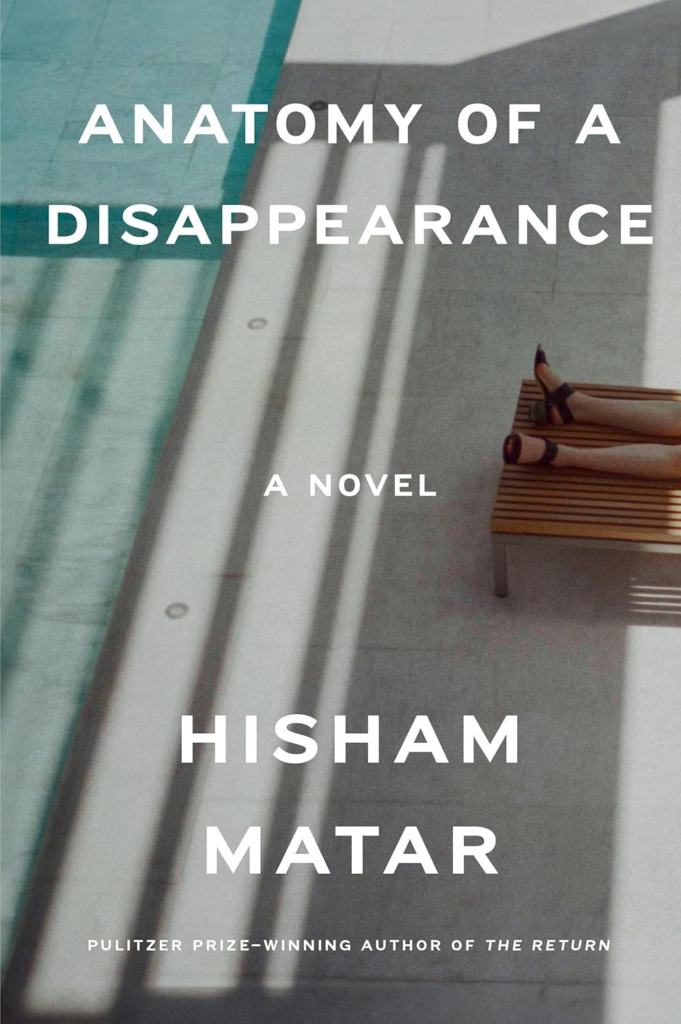
Anatomy of a Disappearance is a haunting novel about loss, longing, and the unseen depths of those we love. After the sudden disappearance of his father—a political dissident in exile—young Nuri and his stepmother Mona are left to grapple with the mysteries of his life and the void he leaves behind. Set against a backdrop of political unrest, the novel explores the fragile bonds of family and the way absence reshapes those left behind.
Hisham Matar – In the Country of Men (2006)
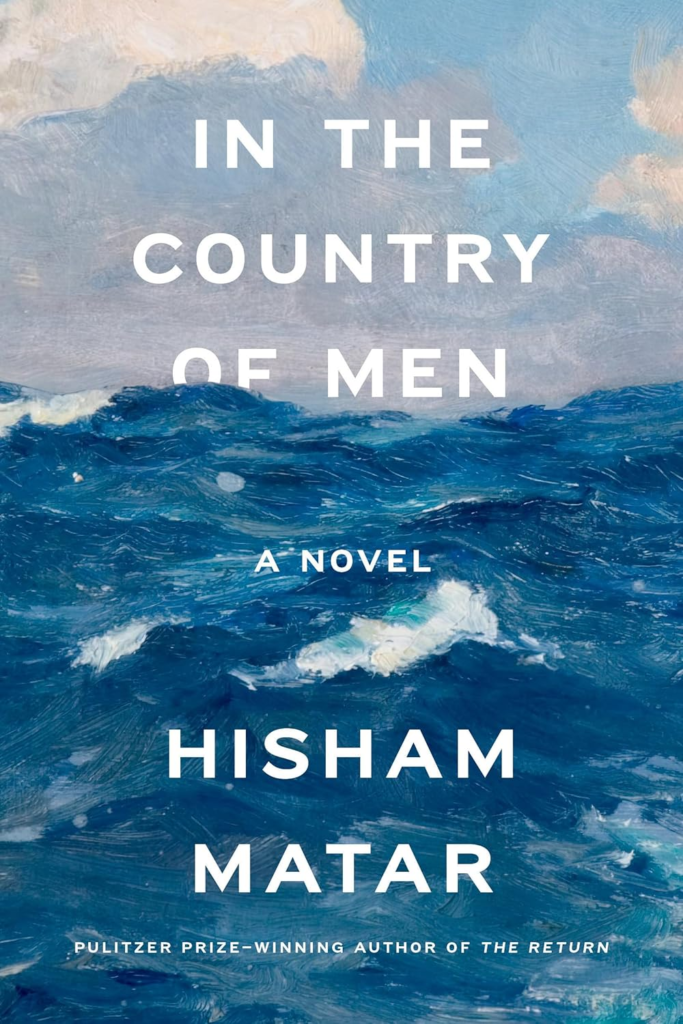
In the Country of Men is a coming-of-age novel set in Libya during the oppressive rule of Muammar Gaddafi. Through the eyes of nine-year-old Suleiman, the story captures the slow unraveling of his childhood as he becomes entangled in the dangers of his father’s political secrets and his mother’s hidden sorrows. As fear and suspicion seep into his home, Suleiman is forced to navigate a world far beyond his understanding.
Joseph Geha – Lebanese Blonde (2012)
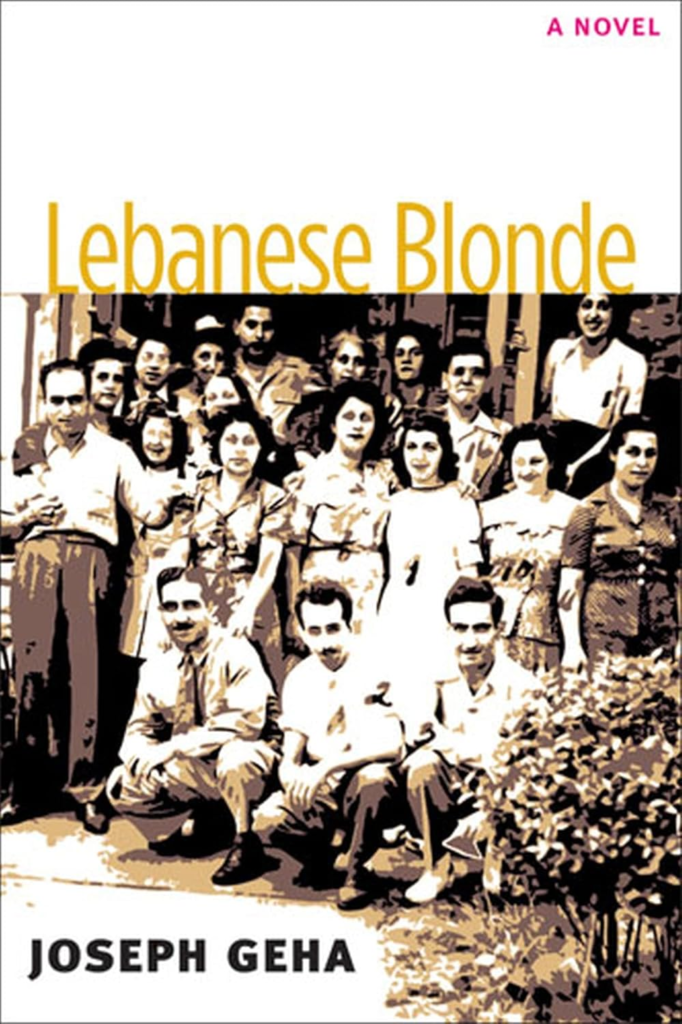
Lebanese Blonde is a novel set in the mid-1970s during the onset of Lebanon’s civil war, following cousins Aboodeh and Samir in Toledo, Ohio’s “Little Syria” community. They devise a plan to smuggle hashish into the U.S. through their family’s mortuary business, but their operation is threatened by a new refugee’s arrival and a botched shipment. With a blend of humor and tension, the novel explores immigration, family, and the far-reaching impacts of war.
Laila Halaby – Once in a Promised Land (2007)
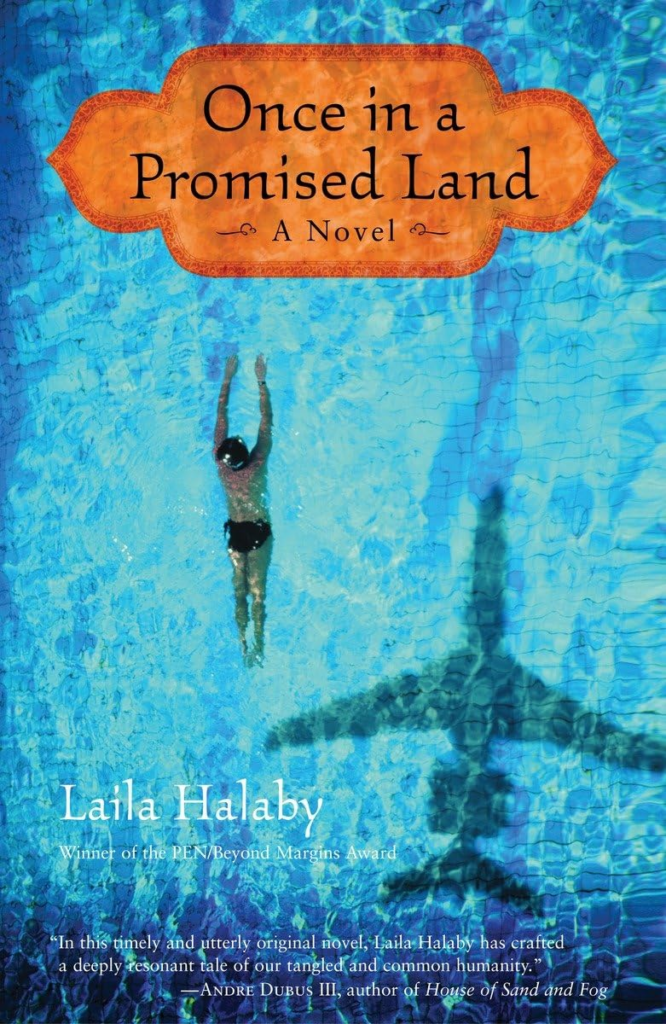
Once in a Promised Land is a novel exploring the unraveling lives of a Jordanian couple in post-9/11 America. Jassim, a dedicated hydrologist, and his wife Salwa, a Palestinian struggling to find belonging, have built a life in Arizona. However, growing distrust and personal tragedies threaten their stability. Halaby delivers a heartfelt story of identity, exile, and the search for belonging in a new country.
Laila Halaby – West of the Jordan (2003)
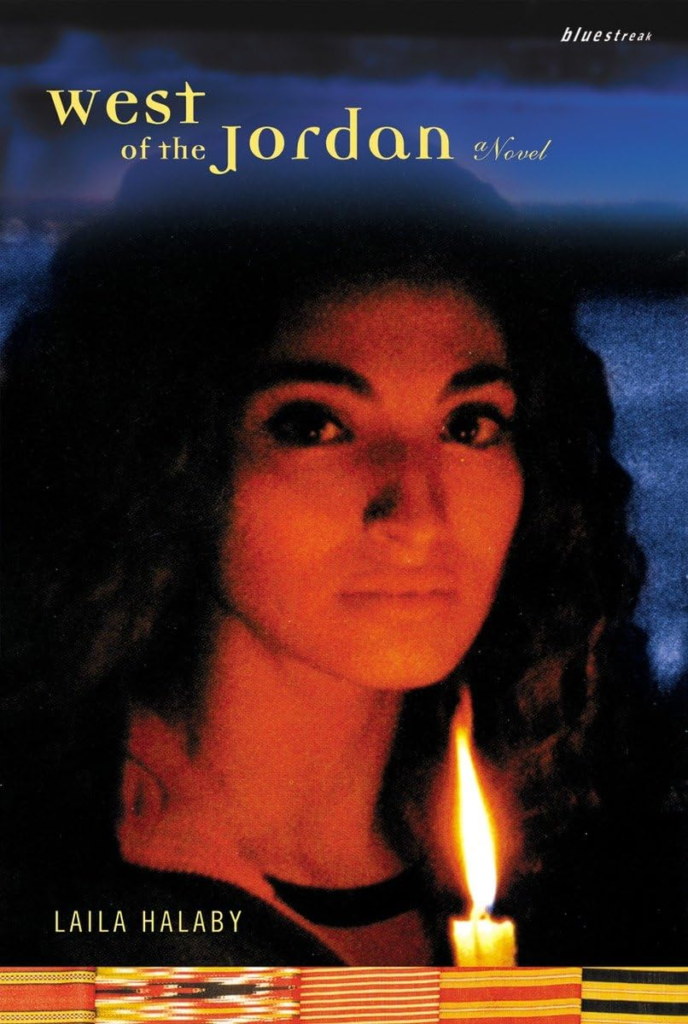
West of the Jordan follows the lives of four Palestinian cousins navigating identity, love, and belonging across different cultural landscapes. Mawal remains rooted in tradition in the West Bank, while Hala is torn between her life in Jordan and her experiences in Arizona. Khadija feels caught between her American circle, who mispronounce her name, and an extended family abroad who speak a language she cannot understand. Lastly, Soraya feels adrift in California, caught between two worlds. Through interwoven narratives, Halaby offers a nuanced exploration of the complexities of heritage, family, and self-discovery.
Laila Lalami – The Moor’s Account (2014)
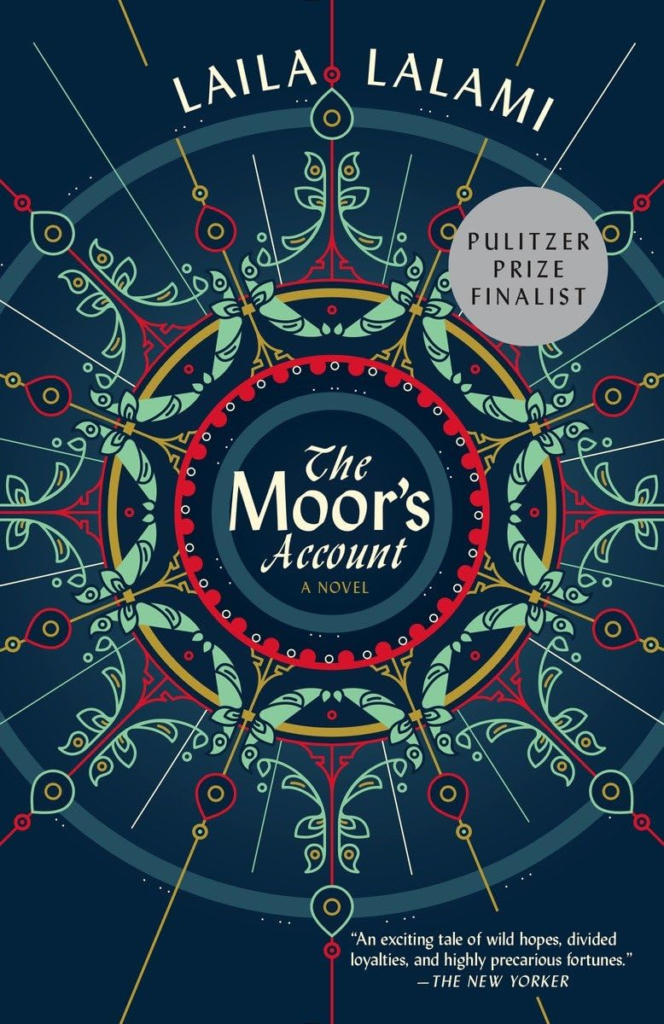
The Moor’s Account reimagines the ill-fated 1527 Narváez expedition through the eyes of Mustafa al-Zamori, a Moroccan slave and one of its four survivors. As he and his companions traverse an unfamiliar land, their harrowing journey reshapes them, challenging notions of conquest, survival, and identity. Blending historical fact with fiction, Lalami offers a powerful and humanizing retelling of America’s early exploration from a rarely heard perspective.
Laila Lalami – The Other Americans (2019)
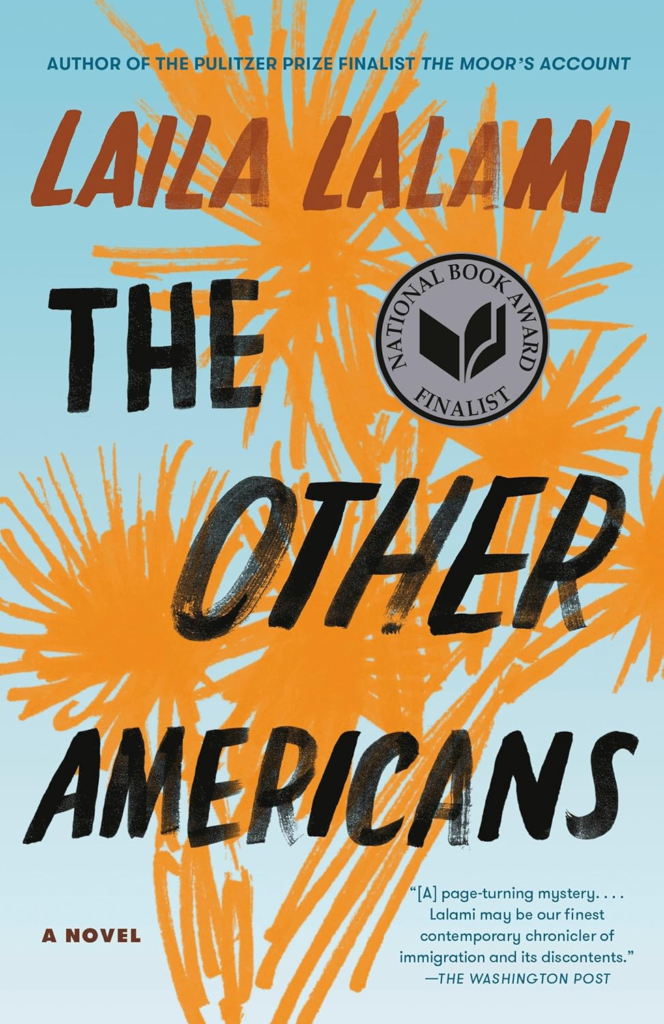
The Other Americans explores the aftermath of the suspicious death of a Moroccan immigrant killed in California. As his daughter, Nora, returns to the town she fled, and his widow, Maryam, reflects on their life in Morocco, a diverse group of characters becomes entangled in the mystery. With themes of race, religion, and class, the novel weaves a tale of secrets, love, and connection, as characters navigate the complexities of identity and belonging in America.
Lena Mahmoud – Amreekiya (2018)
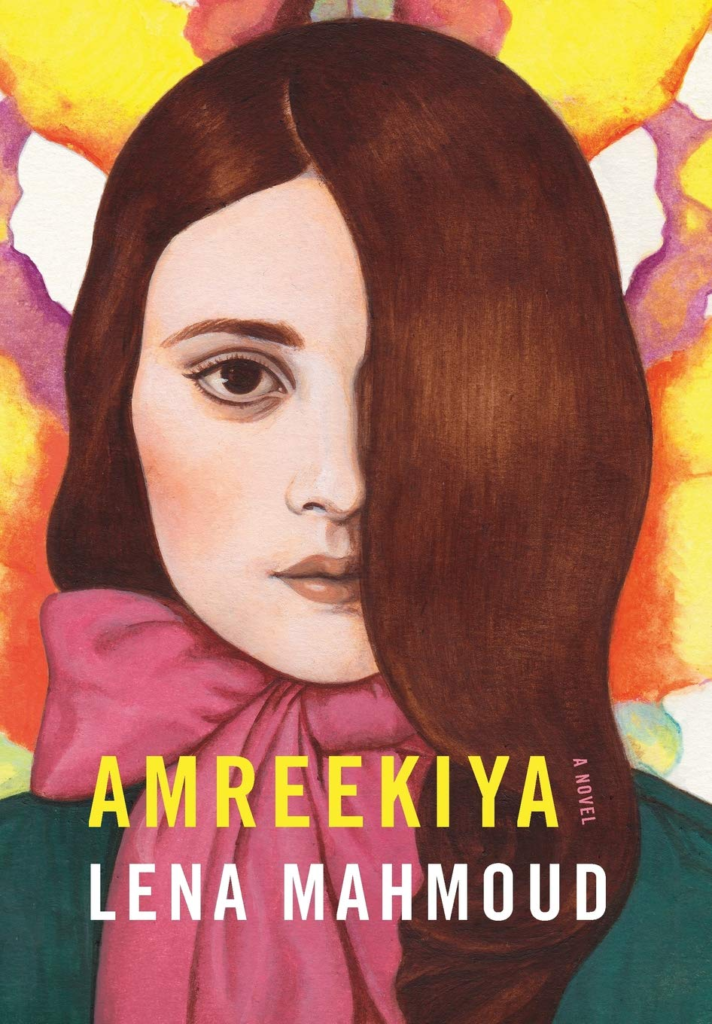
Amreekiya follows Isra Shadi, a young woman of mixed Palestinian and white descent, as she navigates love, family, and cultural identity. Pressured to marry, she weds Yusef but struggles to reconcile her past and present. Alternating timelines explore themes of belonging, sexism, and resilience in this powerful debut.
Mohja Kahf – The Girl in the Tangerine Scarf (2006)
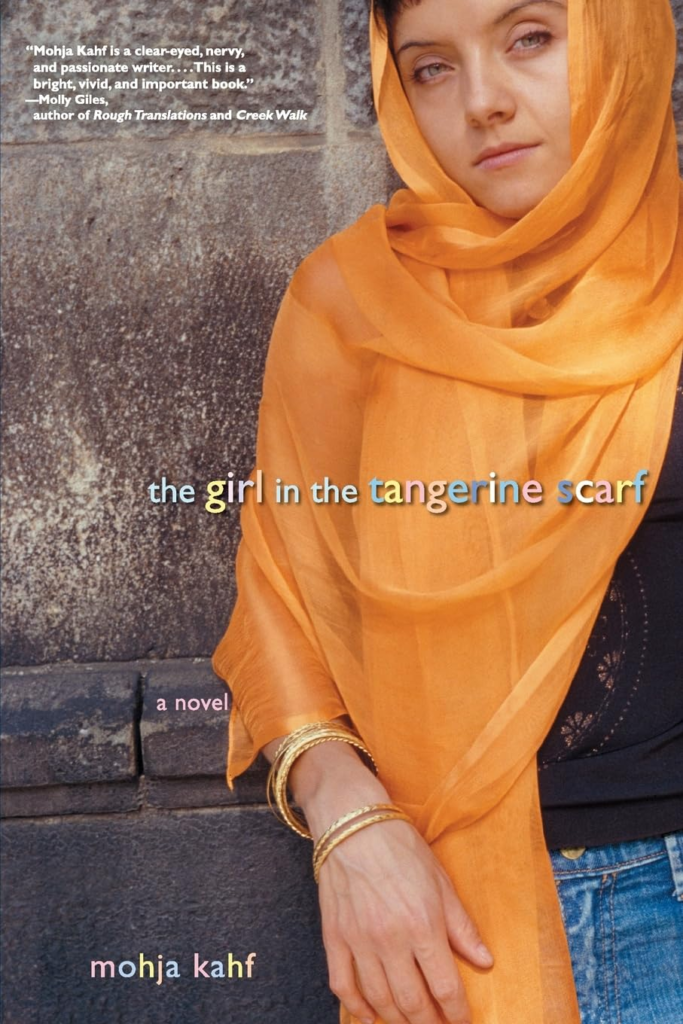
The Girl in the Tangerine Scarf follows Khadra Shamy, a Syrian immigrant growing up in a devout Muslim family in 1970s Indiana. As she navigates faith, identity, and culture, her journey takes her from Indiana to Syria and back, confronting past traumas and rediscovering herself. It is a beautifully written novel that offers a rich portrait of Arab Muslim life in middle America.
Rajia Hassib – In the Language of Miracles (2015)
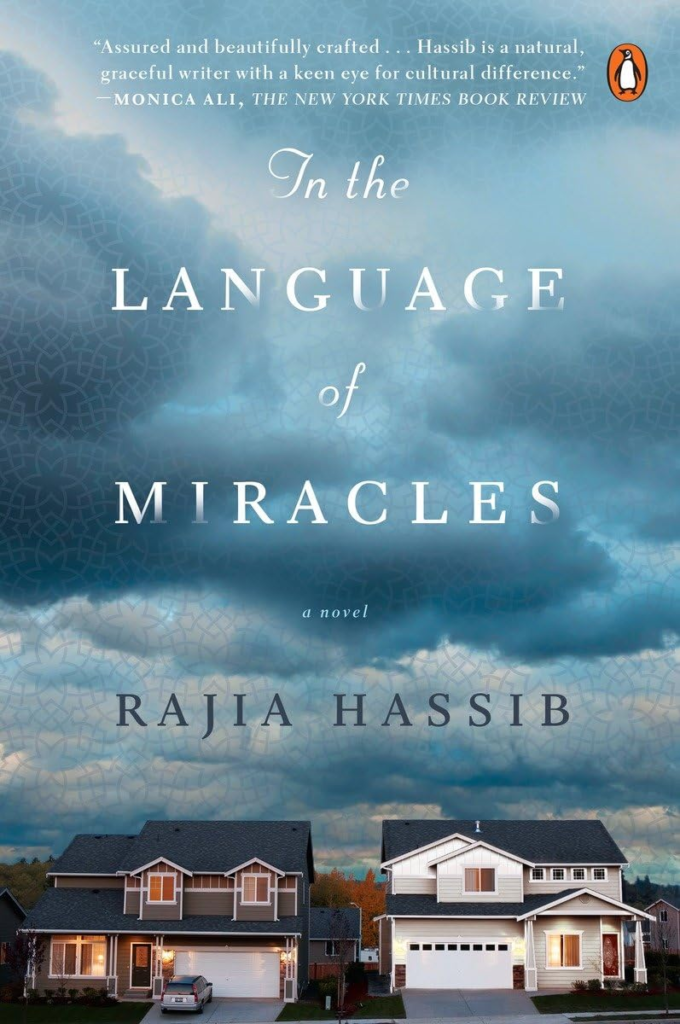
In the Language of Miracles is a debut novel about an Egyptian American family shattered by tragedy. After years of building a life in suburban New Jersey, the Al-Menshawys become outcasts when their son Hosaam and his childhood friend Natalie die in a devastating event. A year later, as the town prepares a memorial for Natalie, the family struggles with grief, guilt, and the weight of community judgment. Hassib explores the complexities of identity, mental illness, and the fragile bonds of family.
Sinan Antoon – The Corpse Washer (2010)
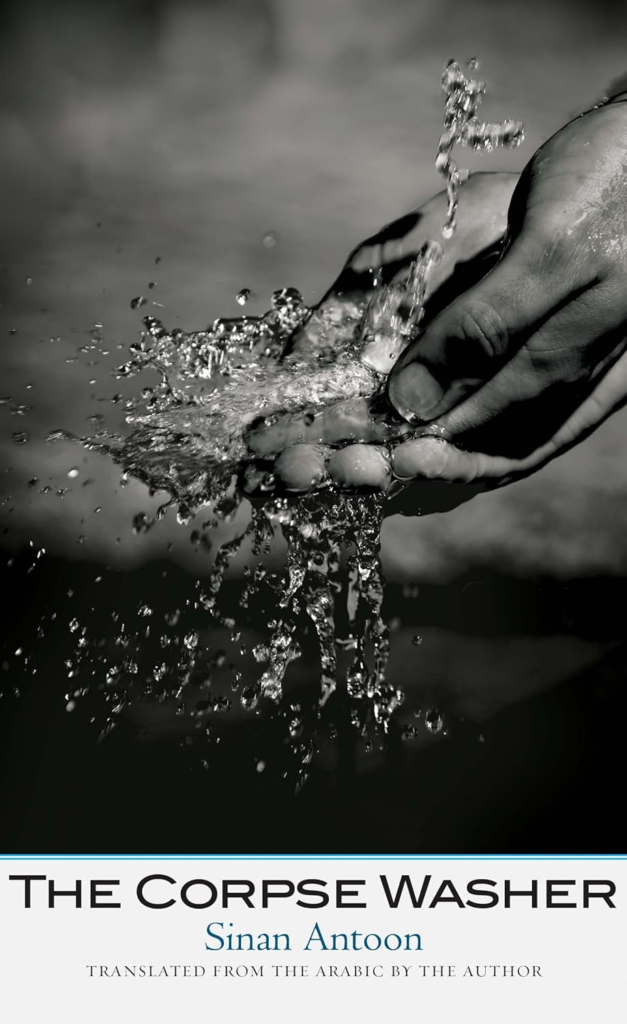
The Corpse Washer follows Jawad, a young man born into a family of traditional Shi’ite corpse washers in Baghdad. Rejecting his father’s path, he pursues art, determined to sculpt life instead of tending to death. But history intervenes—economic sanctions and the 2003 invasion shatter Iraq, forcing Jawad back into his family’s grim trade. As violence and corpses overwhelm the city, he struggles to reconcile his artistic aspirations with the brutal reality of war.
Susan Abulhawa – Against the Loveless World (2019)
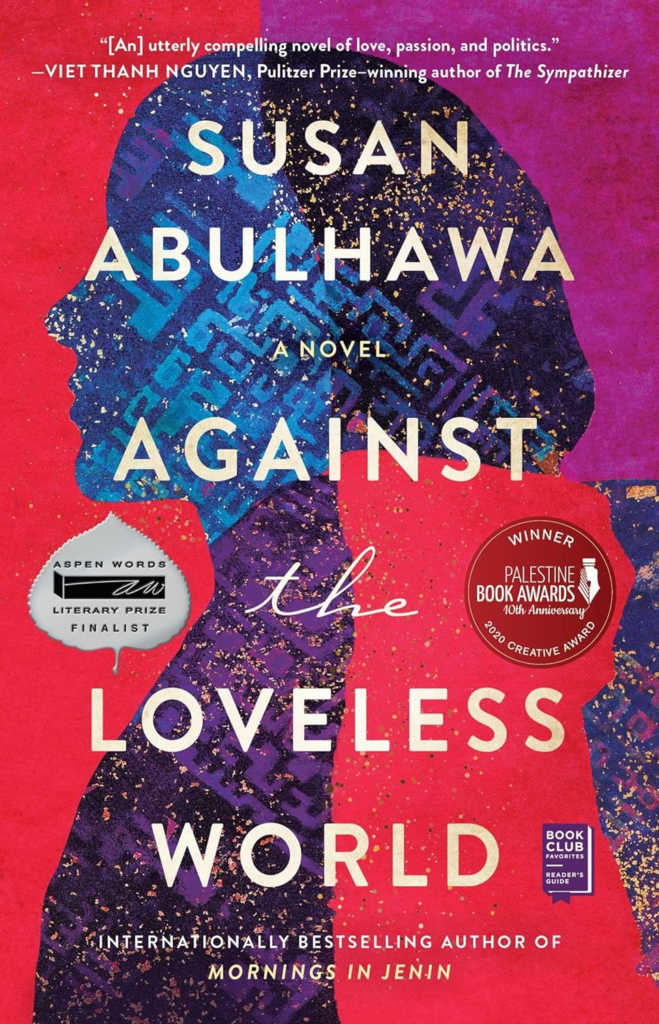
Against the Loveless World follows Nahr, a Palestinian refugee reflecting on the harrowing journey that led her to solitary confinement in a country she barely knows. Born in Kuwait in the 1970s, she dreams of love, stability, and owning a beauty salon. Instead, betrayal, poverty, and war force her into exile—from Kuwait to Jordan and finally to Palestine, where she finds love and a sense of belonging under Israeli occupation.
Susan Muaddi Darraj – A Curious Land (2015)
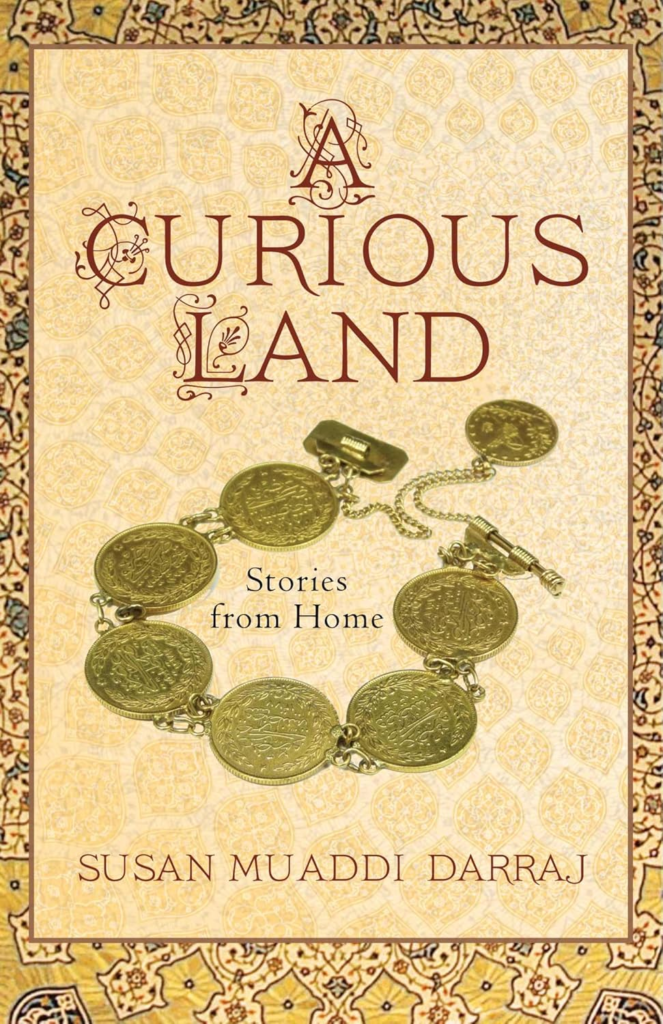
A Curious Land is a collection of interconnected short stories set in the Palestinian village of Tel al-Hilou, spanning generations and continents. Through vivid storytelling, the collection explores themes of memory, belonging, and the true meaning of home, giving voice to the Palestinian experience over the last century.
Susan Muaddi Darraj – The Inheritance of Exile (2007)
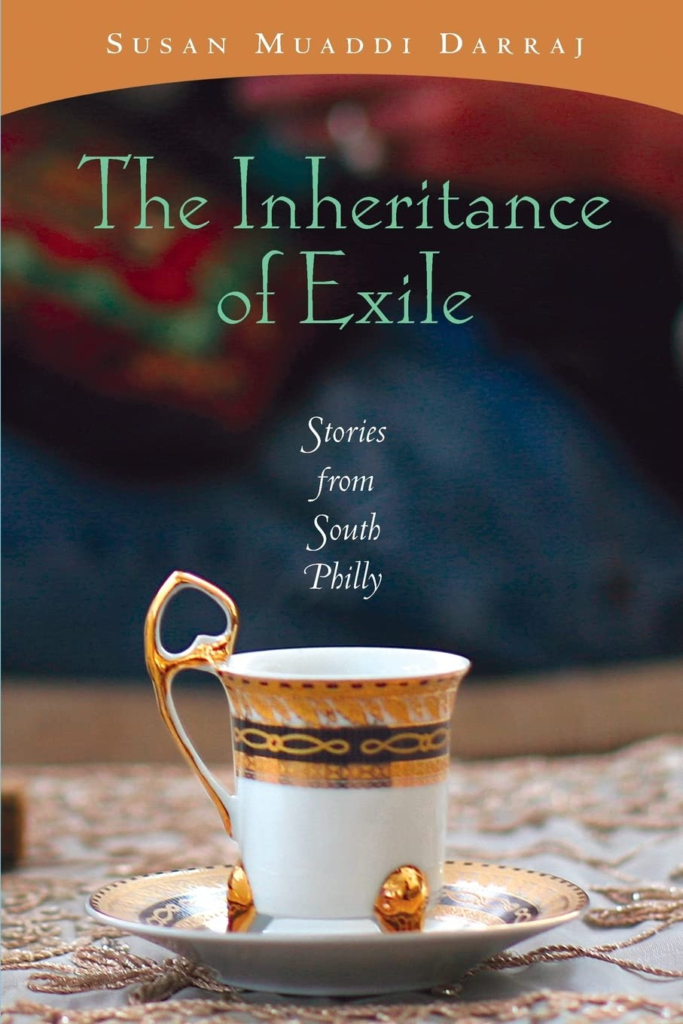
The Inheritance of Exile is a beautifully woven collection of stories following four Arab American women—Hanan, Nadia, Reema, and Aliyah—as they navigate the cultural divide between their Palestinian heritage and their lives in South Philadelphia. Through their struggles and triumphs, as well as the perspectives of their mothers, the collection explores identity, generational conflict, and the search for belonging.
Thérèse Soukar Chehade – Loom: A Novel (1989)
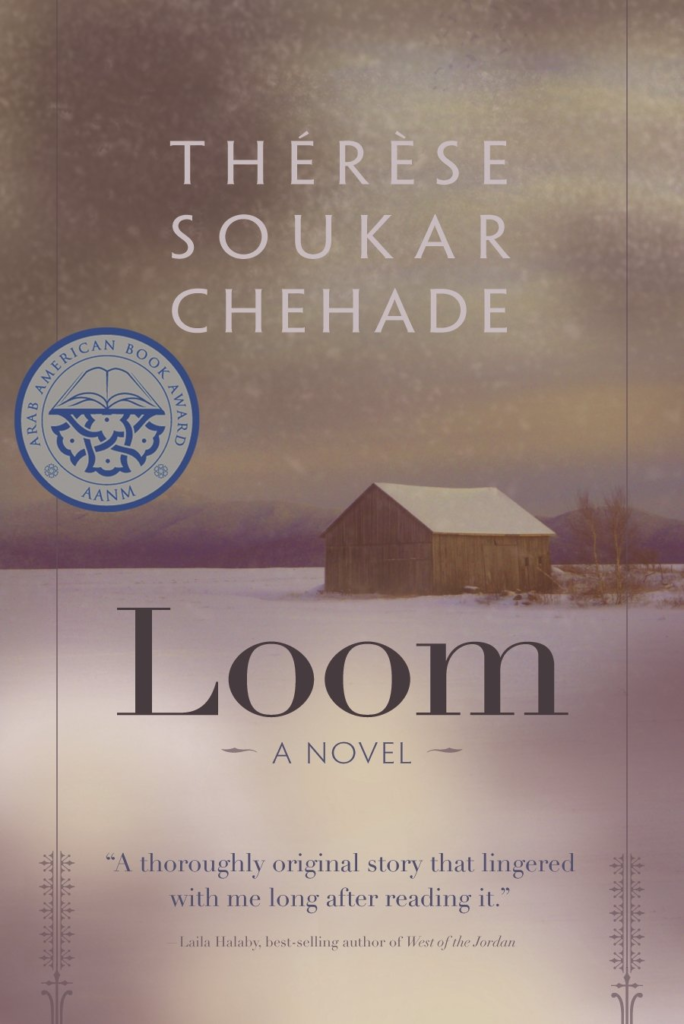
Loom follows the Zaydan family as they navigate identity and connection during a snowstorm in New York. As they await the arrival of a cousin from Lebanon, the family’s personal struggles and relationships unfold. At the center is Loom, a lonely neighbor whose presence sparks a desire for understanding and connection. The book offers a moving exploration of family, isolation, and belonging.
Thérèse Soukar Chehade – We Walked On (2024)
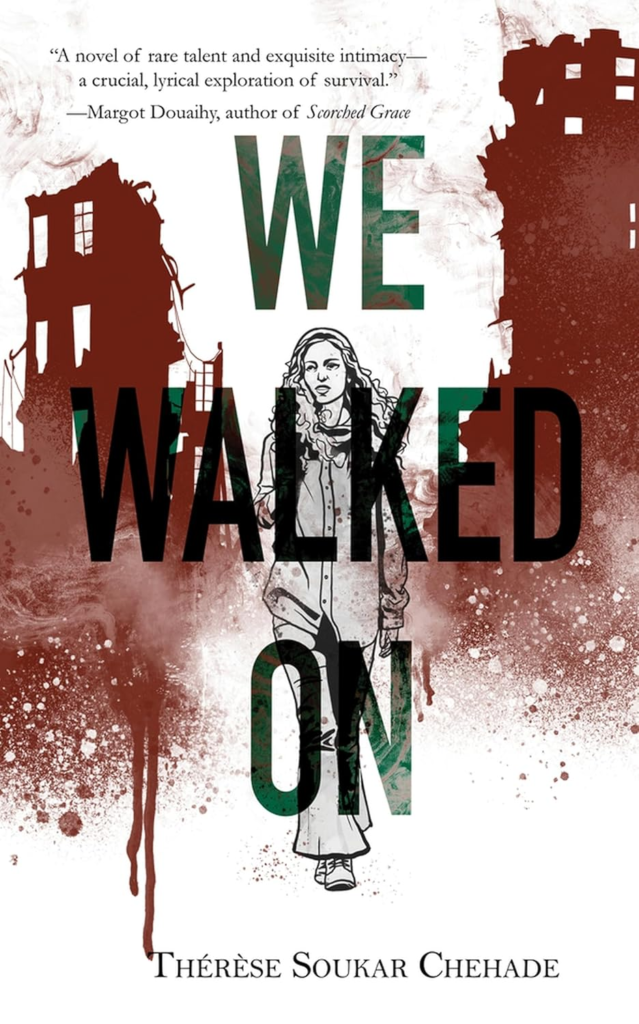
We Walked On follows Hisham, a thirty-year-old teacher, and Rita, his fourteen-year-old student, as they navigate the early years of Lebanon’s civil war. Amid violence, they find solace in books and human connection, exploring the possibility of hope and peace in a fractured world.
Memoirs
Abraham Rihbany – A Far Journey (1914)

A Far Journey is considered the first Arab American autobiography. The book chronicles Rihbany’s journey from his hometown in Lebanon to the United States in the late 1800s. It details his experiences as an immigrant, including struggles with learning the English language, facing prejudice, and overcoming challenges to succeed as a writer, speaker, and priest. Rihbany’s story offers valuable insights into the early Arab American immigrant experience.
Anthony Shadid – House of Stone (2012)
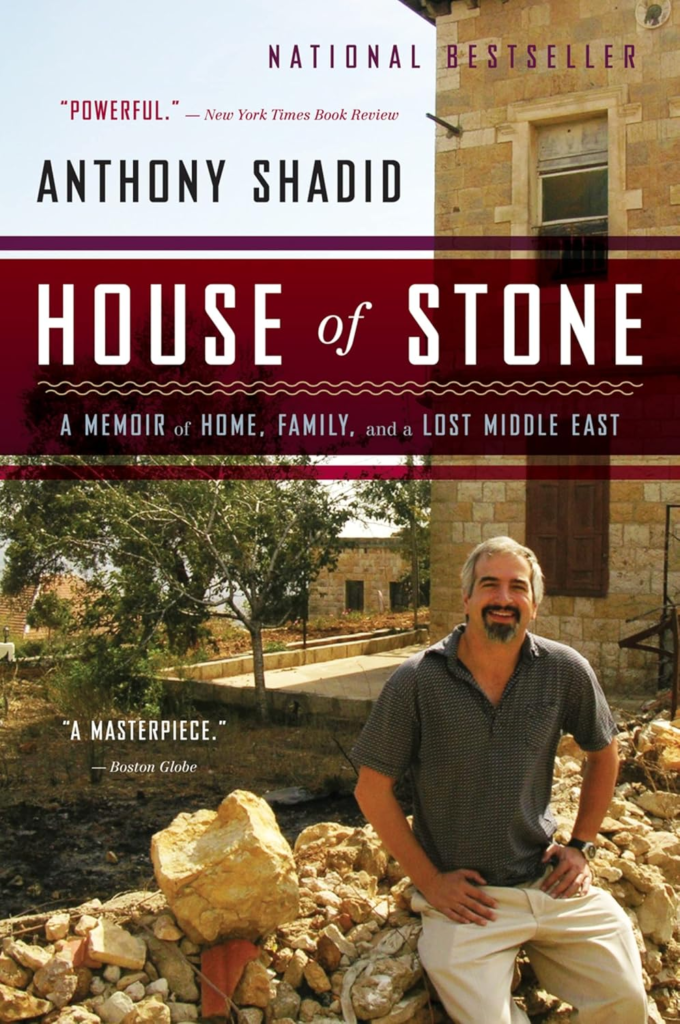
House of Stone traces the author’s return to his great-grandfather’s estate in southern Lebanon, where he had begun rebuilding the family home. Amidst the backdrop of war and exile, Shadid reflects on his family’s history, the impact of conflict, and the longing for home. Through his personal journey, he explores themes of loss, resilience, and rebirth in the Middle East.
Avi Shlaim – Three Worlds: Memoirs of an Arab-Jew (2023)
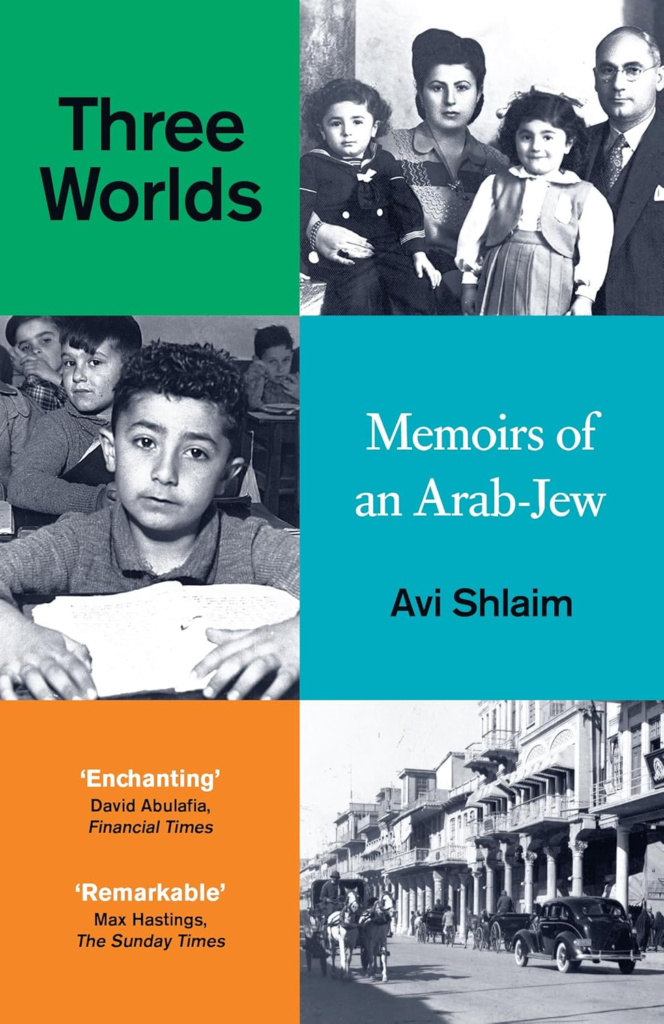
Three Worlds: Memoir of an Arab-Jew offers a powerful account of Iraq’s vanished Jewish community and its complex history. Challenging the dominant Zionist narrative, Shlaim explores his family’s life in Baghdad, the rise of anti-Semitism, and the role of the Zionist underground in their exile. Blending personal memoir with political insight, he sheds light on the forgotten experiences of Arab-Jews caught between competing nationalisms.
Ayser Salman – The Wrong End of the Table (2019)
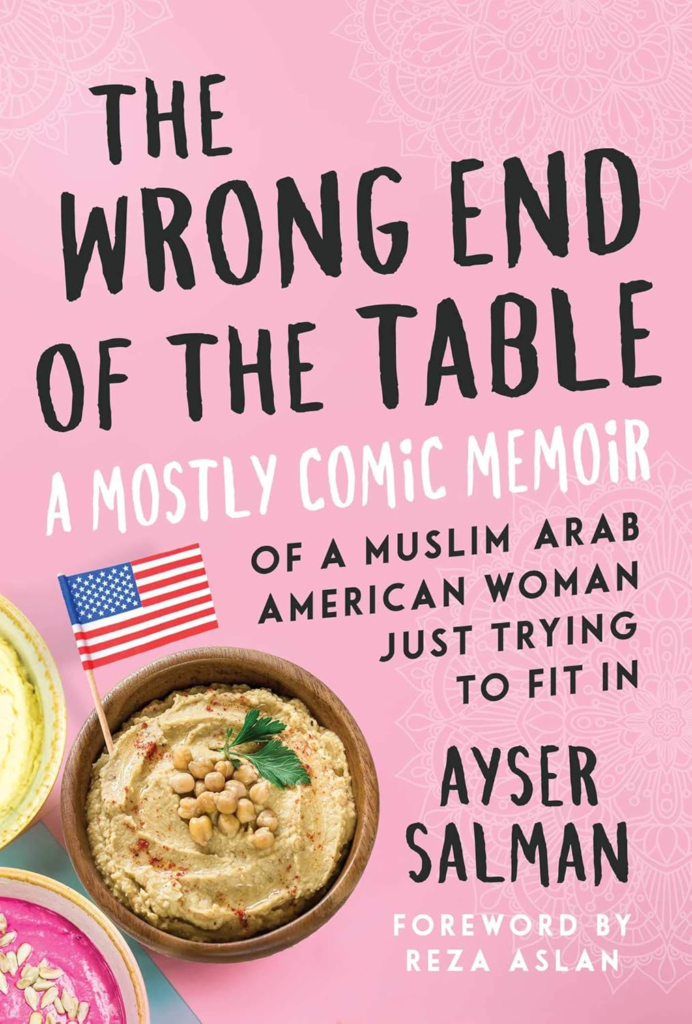
The Wrong End of the Table is a witty and relatable memoir about navigating the immigrant experience in America. Uprooted from Iraq to Columbus, Ohio, young Ayser struggles with culture shock, awkward adolescence, and the challenge of fitting in while staying true to her identity. Blending humor with heartfelt reflection, Salman explores themes of assimilation, family expectations, and life as an Arab American post-9/11 in this sharp and engaging coming-of-age story.
Diana Abu-Jaber – Life Without a Recipe (2016)
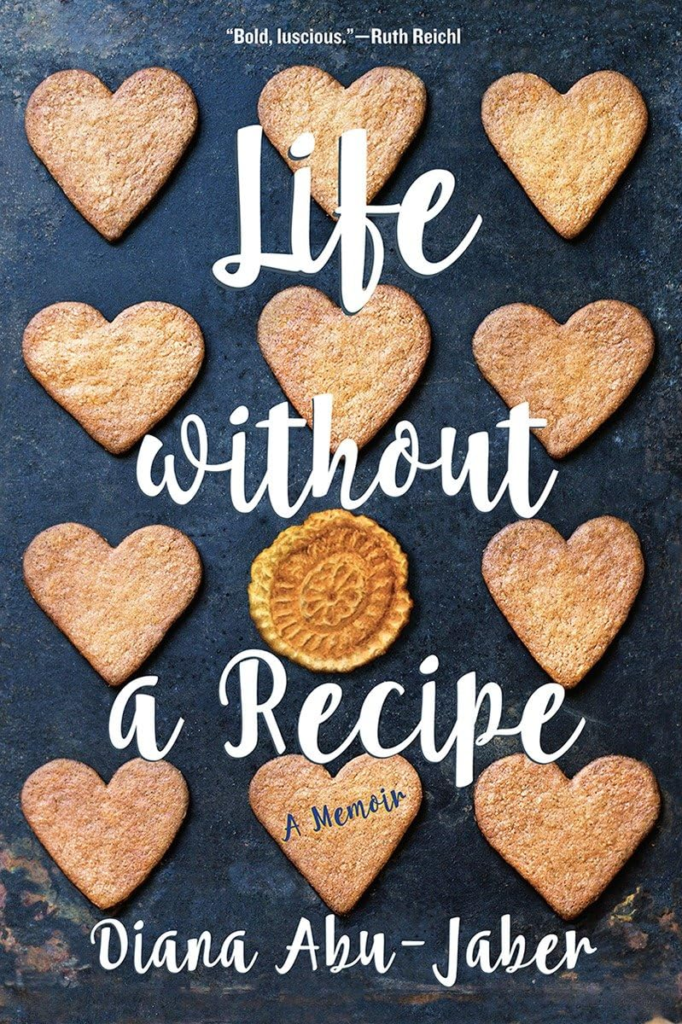
Life Without a Recipe is a heartfelt memoir about forging one’s own path despite family expectations. Caught between her independent German grandmother and her passionate Arab father, Diana navigates conflicting advice on love, career, and motherhood. Through humorous and poignant storytelling, she reflects on failed marriages, the pursuit of writing, and the unexpected journey to motherhood in her late forties. A celebration of improvisation and self-discovery, this beautifully written memoir embraces the art of living life on one’s own terms.
Diana Abu-Jaber – The Language of Baklava (2005)

The Language of Baklava explores identity, family, and heritage through the lens of food. Growing up between New York and Jordan, Abu-Jaber navigates the joys and challenges of two cultures, guided by her larger-than-life father and the meals that connect them. Rich with humor, nostalgia, and recipes, this book is a delicious celebration of love and tradition.
Edward Said – Out of Place (1999)
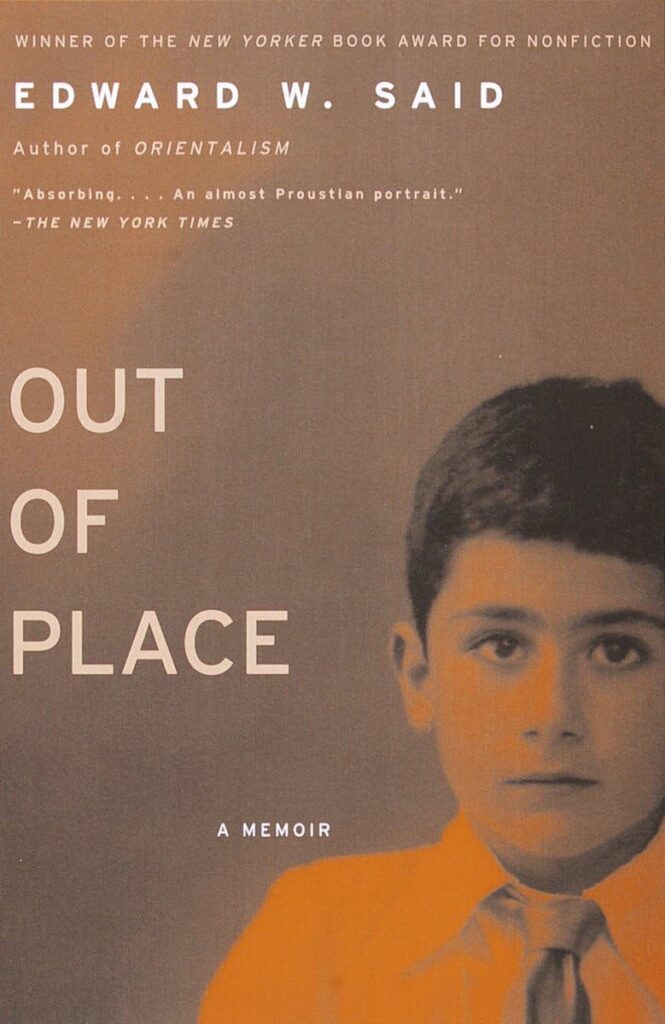
Out of Place is a poignant memoir of identity and displacement, tracing Said’s childhood across Jerusalem, Cairo, and Lebanon. Caught between cultures—Arab yet Christian, Palestinian yet American—Said reflects on his formative years under a strict father and a loving but ambivalent mother. With deep introspection, he captures the loss of a world that no longer exists and the lifelong search for belonging
Greg Orfalea – Angeleno Days (2009)
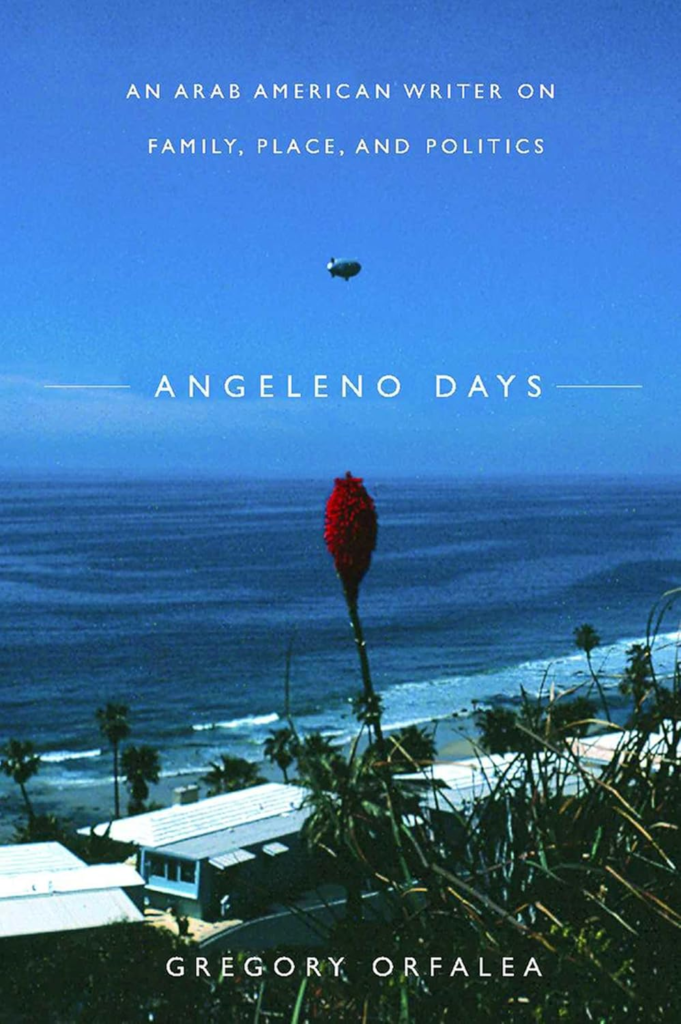
Angeleno Days is a collection of essays exploring his deep connection to Los Angeles and the struggles of identity, loss, and belonging. Returning to his hometown, Orfalea reflects on the changing city, his Arab American roots, and personal tragedies that shaped his life. With vivid storytelling and searing insight, he captures the complexities of being an Angeleno and what it means to stay human in an ever-changing world.
Hala Gorani – But You Don’t Look Arab (2024)
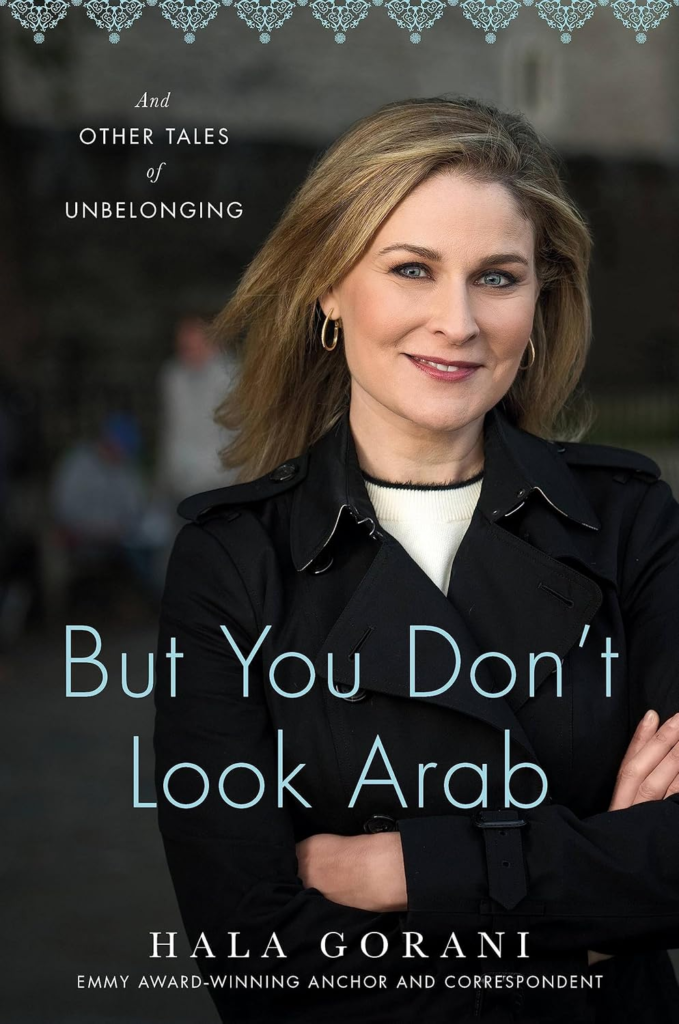
But You Don’t Look Arab is a memoir that intertwines her experiences as an Emmy-winning journalist with her lifelong search for identity as the daughter of Syrian immigrants. Raised between America and France, Gorani never felt fully at home anywhere, yet found purpose in reporting from some of the world’s most dangerous conflict zones. Through personal history and sharp journalism, she explores displacement, belonging, and the upheavals of the Middle East.
Ibtisam Barakat – Balcony on the Moon (2016)
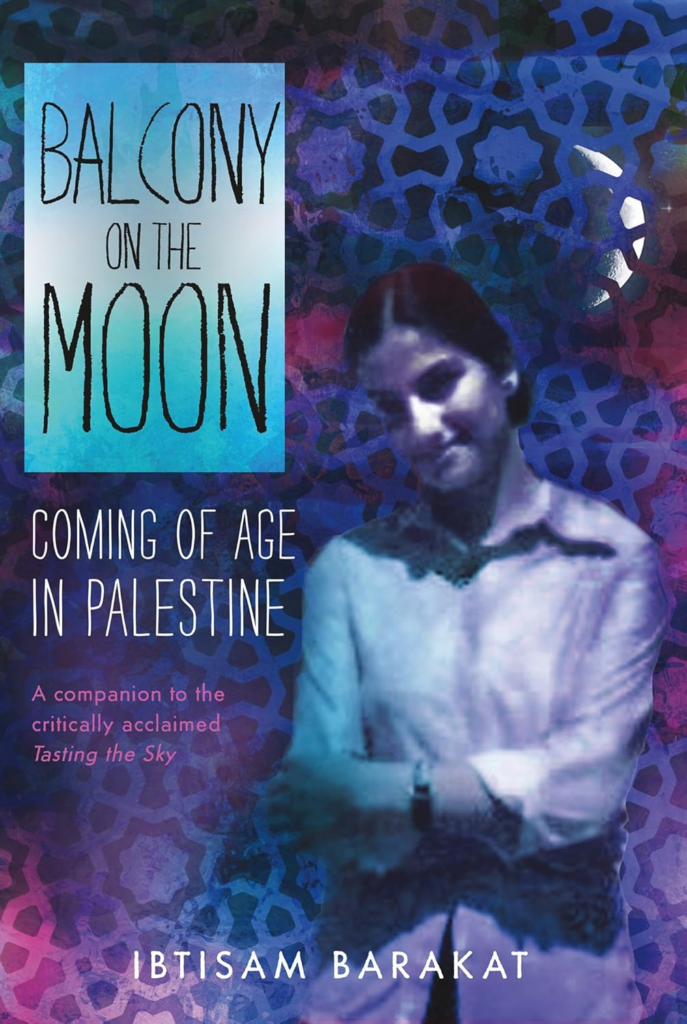
Balcony on the Moon is a memoir chronicling Barakat’s adolescence in Palestine from 1972 to 1981 and her growing passion for writing. Through letters, encouragement from mentors, and an unexpected inspiration—her mother’s pursuit of education—Barakat navigates life in a politically turbulent region. Touching, humorous, and insightful, this coming-of-age story offers a rare glimpse into everyday life in Palestine and the power of perseverance.
Ibtisam Barakat – Tasting the Sky (2007)
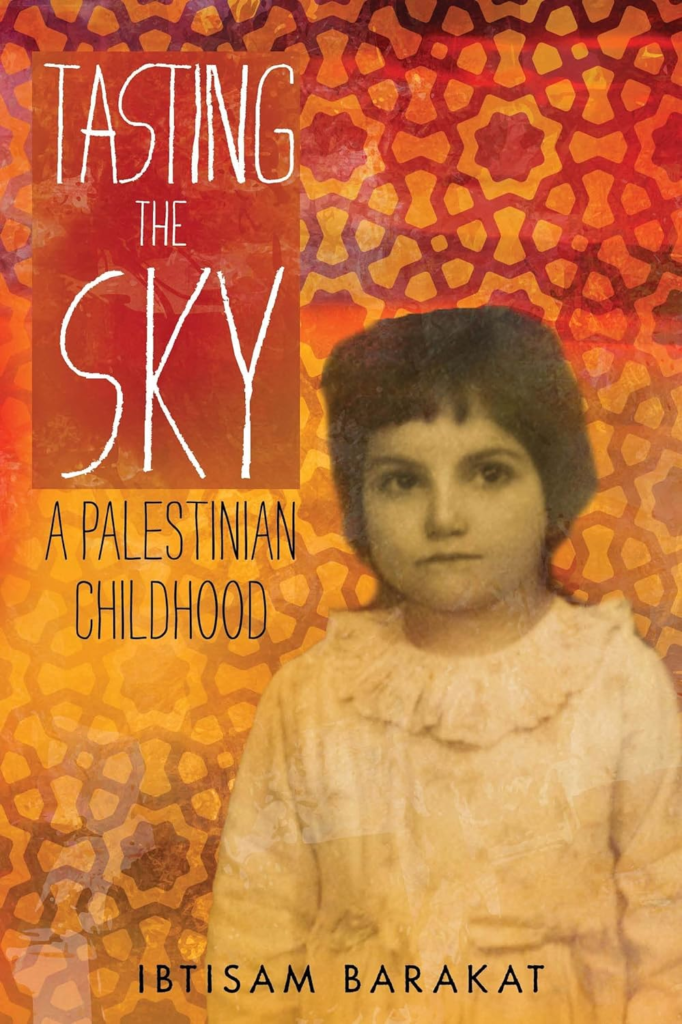
Tasting the Sky is a memoir of childhood in Ramallah during the aftermath of the 1967 Six-Day War. Separated from her family and facing life as a Palestinian refugee, Barakat finds solace in language, discovering a deep connection to words that helps her make sense of a fractured world. Poignant and illuminating, this memoir offers a rare, personal glimpse into Palestinian life and the resilience of the human spirit.
Laila Ahmed – A Border Passage (1999)
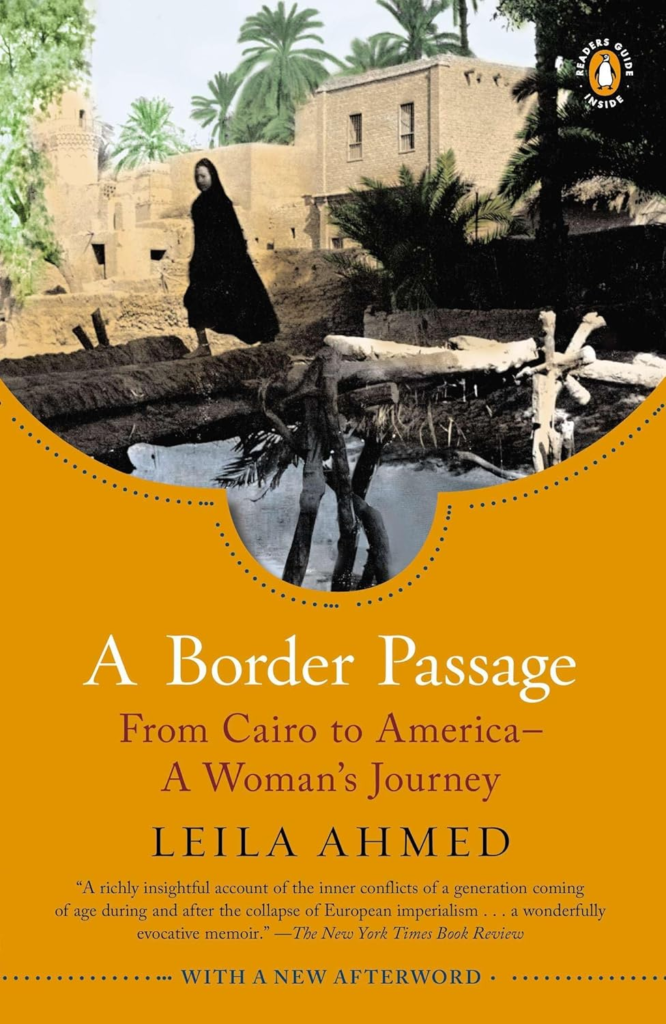
In A Border Passage, Leila Ahmed recounts her childhood in Egypt and her journey as a feminist in America. Set against the backdrop of Egypt’s political and social transformations, she reflects on her complex identity as a Muslim woman navigating cultural change. This memoir offers a poignant look at personal and national evolution, updated with an afterword on the Arab Spring.
Malaka Gharib – I Was Their American Dream (2019)
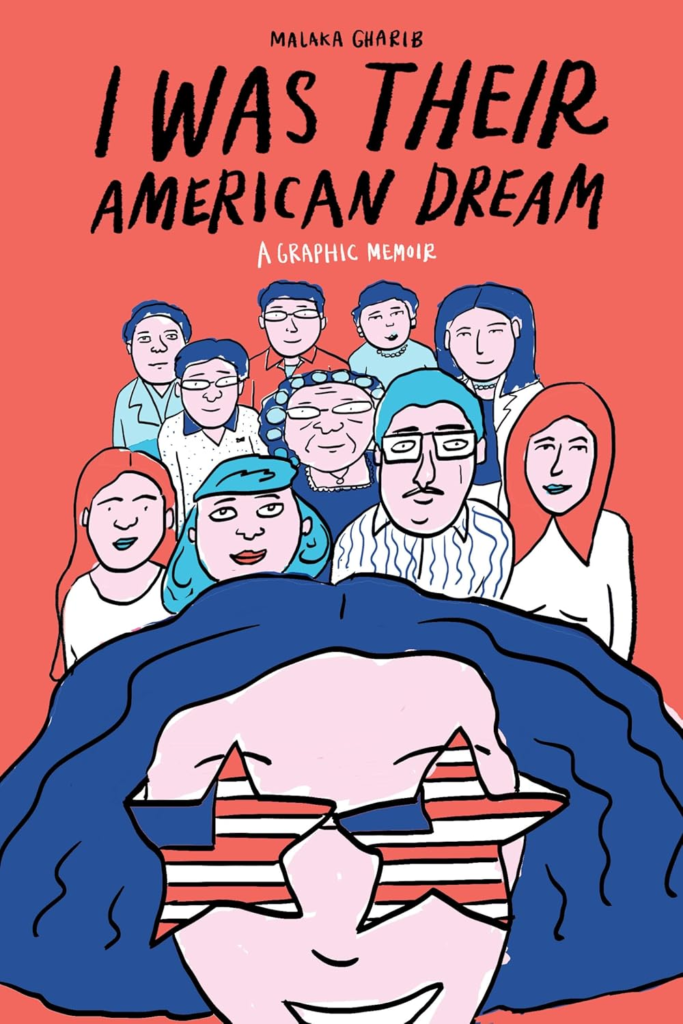
I Was Their American Dream by Malaka Gharib is a graphic memoir that explores the complexities of identity and belonging as the daughter of Filipino and Egyptian immigrants. Through vivid illustrations, Gharib reflects on her childhood experiences of balancing cultural traditions with the desire to fit into American society. The memoir is a poignant and humorous look at the immigrant experience, showcasing the tension between honoring one’s heritage and adapting to a new world.
Malaka Gharib – It Won’t Always Be Like This (2022)
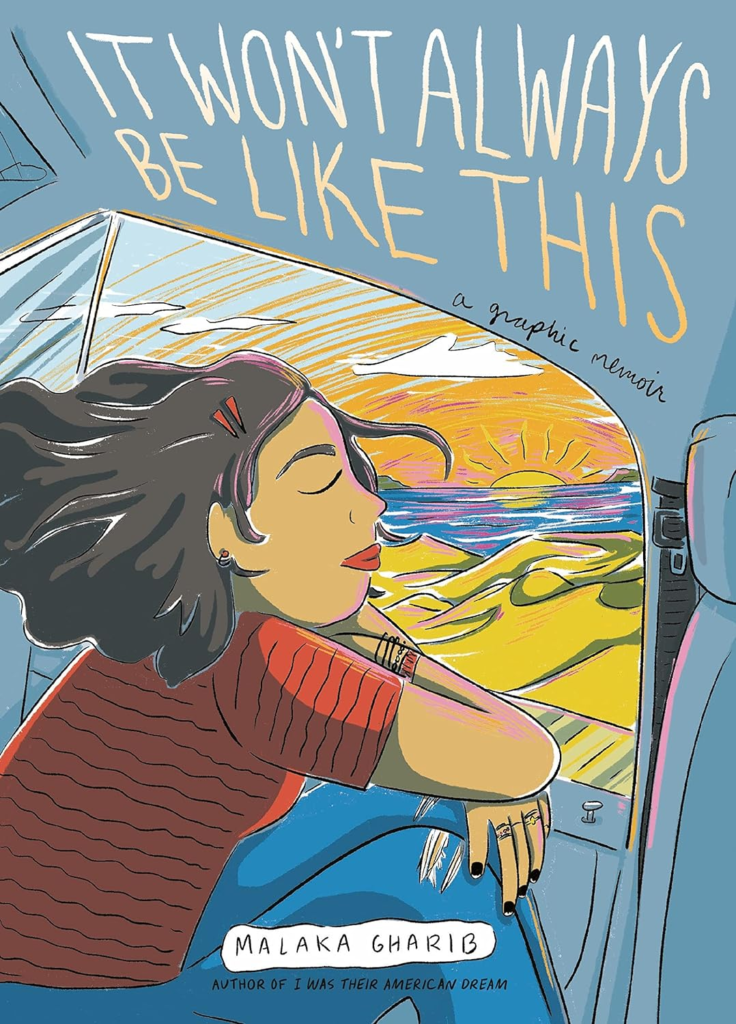
It Won’t Always Be Like This is a graphic memoir that chronicles the author’s annual visits to Egypt as a child of Egyptian heritage and American upbringing. When Malaka’s father remarries, her summer vacations take on new meaning, as she navigates a growing family and confronts her changing sense of identity. Over the course of fifteen years, Malaka learns to balance the cultural differences between her American life and her Egyptian roots, discovering the beauty of her heritage and the bonds that tie her to her family.
Mansoor Adayfe – Don’t Forget Us Here (2021)
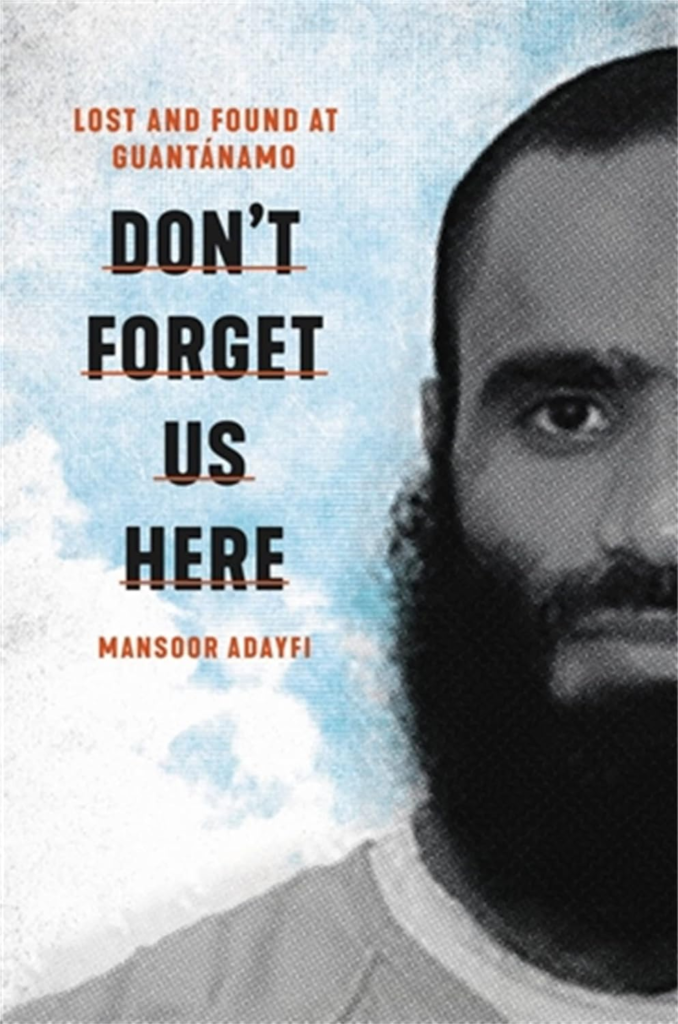
Don’t Forget Us Here is a powerful memoir about Adayfi’s 15-year detention at Guantánamo Bay after being wrongfully captured and sold to the U.S. as a teenager. Through his journey from a rebellious youth to a resilient man, Adayfi reflects on the brutal conditions of the prison, while also offering a unique perspective on survival, hope, and human connection in the darkest of places. His story is a poignant account of endurance and the quest for justice.
Massoud Hayoun – When We Were Arabs (2019)
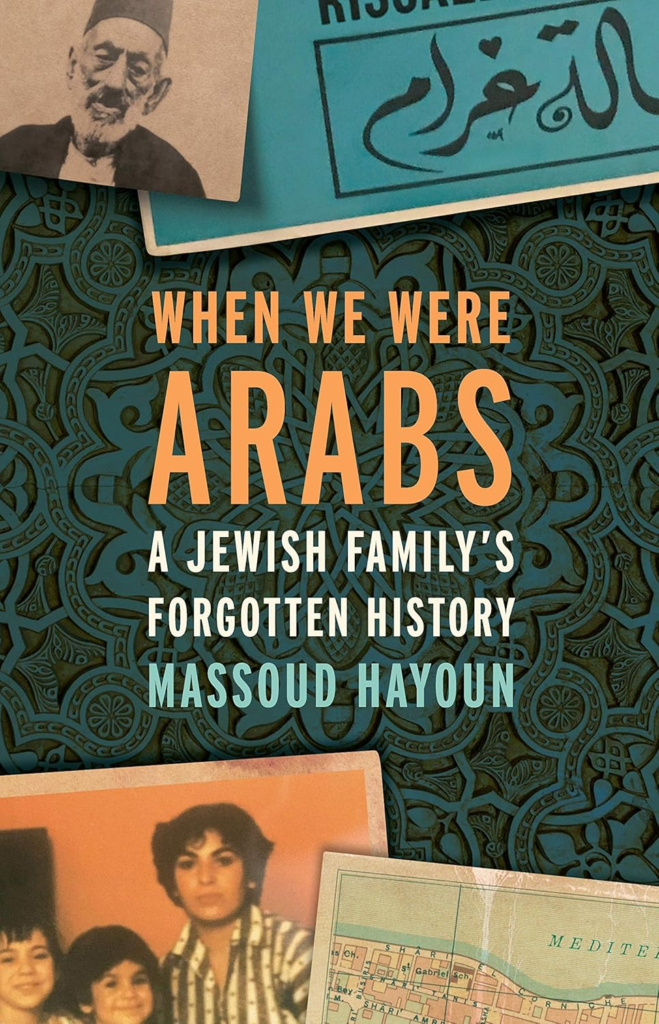
When We Were Arabs explores Hayoun’s Jewish Arab family’s history, spanning Egypt, Tunisia, Palestine, and Los Angeles. Through the vivid lives of his grandparents, the author reclaims the identity of Jewish Arabs, offering a poignant narrative about a time when Arabness was seen as cosmopolitan and intellectual, not tied to any particular religion. The memoir reflects on the loss of this nuanced identity, challenging contemporary notions of ethnicity and identity in the Middle East and beyond.
Najla Said – Looking for Palestine (2013)
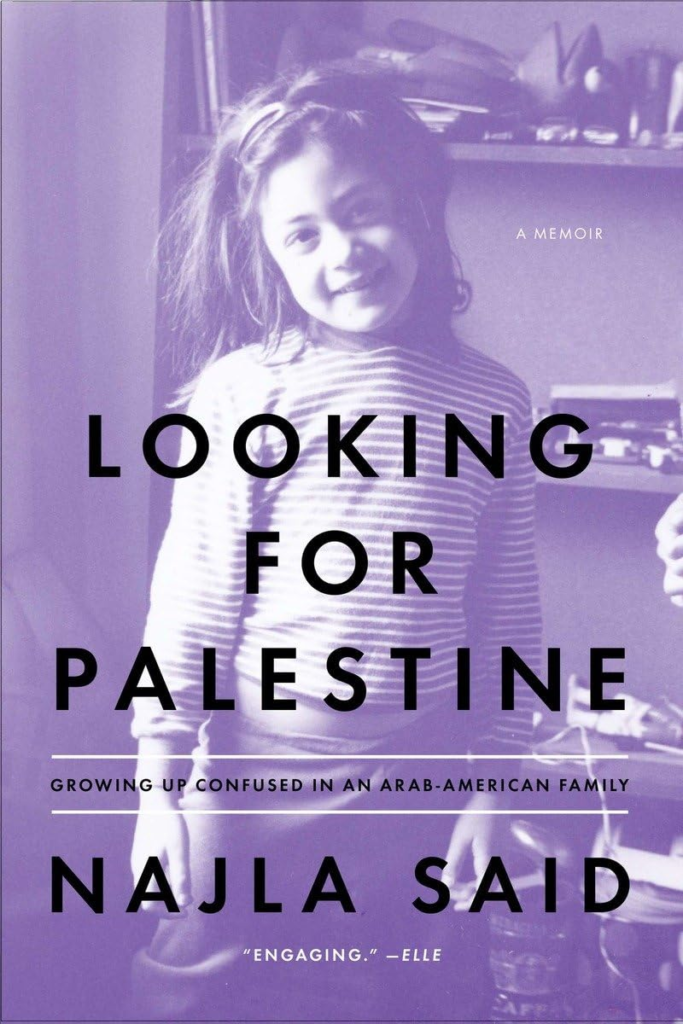
Looking for Palestine is a memoir about growing up as a second-generation Arab American. The daughter of Edward Said, Najla struggled with her cultural identity in Manhattan, at times rejecting her Palestinian and Lebanese roots. Through personal and political events, including visits to Palestine and Beirut, she eventually embraces her heritage and becomes an important voice for Arab Americans.
Raff Ellis – Kisses from a Distance (2007)

Kisses from a Distance is a memoir sparked by the discovery of over 200 letters from the author’s late mother, revealing a rich family history from Lebanon. The narrative explores the hardships faced by his ancestors, including a forced marriage in 1895, war, and emigration. Through travel and research, Ellis uncovers hidden stories and historical facts, offering a personal and poignant look at his family’s past.
Salom Rizk – Syrian Yankee (1943)
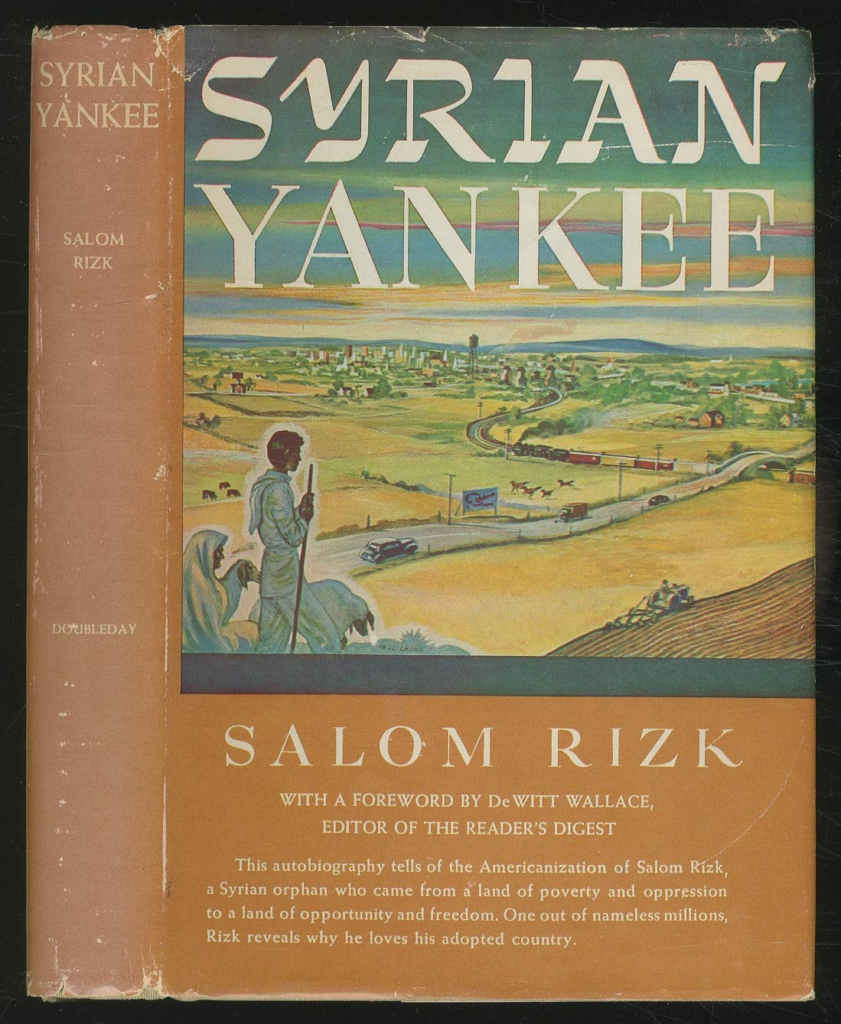
Syrian Yankee is the autobiography of Salom Rizk, a Syrian-born man who overcame poverty and hardship to become a renowned speaker in America. An orphan who emigrated to the U.S., Rizk’s journey is one of perseverance and determination. Sponsored by Reader’s Digest, his story details his struggles during the Great Depression and how he eventually made a significant impact on others’ lives through his caring nature and work.
Sophia Al-Maria – The Girl Who Fell to Earth (2012)

The Girl Who Fell to Earth is a memoir about navigating identity and cultural differences. Sent from rainy Washington to live with her Bedouin family in Qatar, Sophia explores her sense of belonging while grappling with life between two worlds. Her journey takes her through young love, rebellion in Cairo, and self-discovery in Sinai, ultimately finding freedom and a deeper understanding of herself.
Soha Al-Jurf – Even My Voice Is Silence (2012)
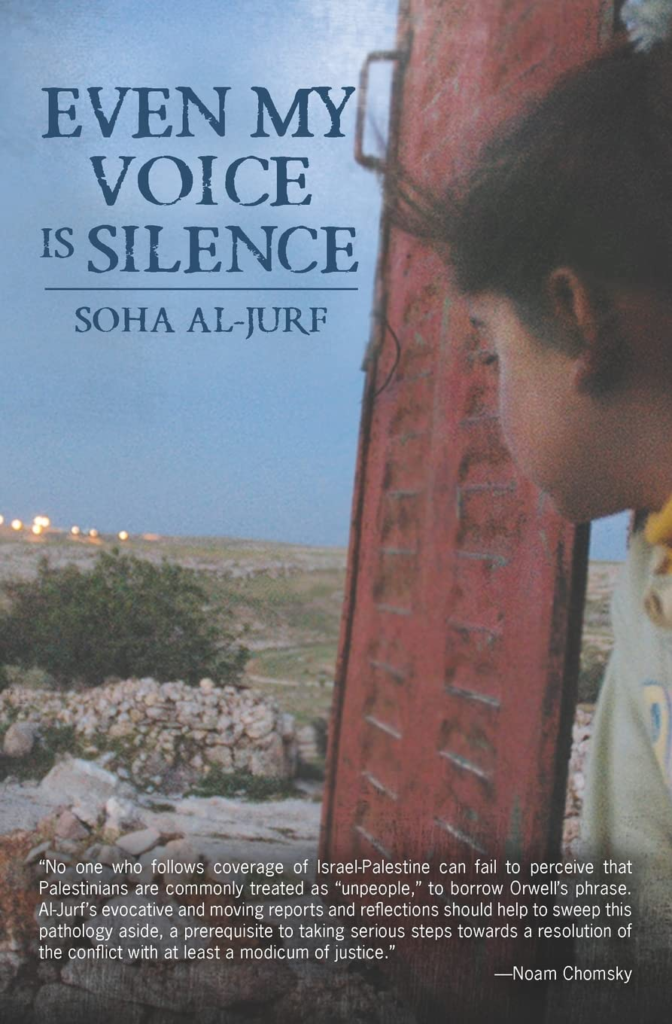
Even My Voice Is Silence follows Al-Jurf’s journey to her father’s Palestinian village. Expecting closure on her Palestinian American identity, she instead faces a deeper search for self, confronting the painful realities of being a refugee. Al-Jurf explores the complexities of living in the U.S. while yearning for a homeland she is disconnected from, offering a unique perspective on life in Occupied Palestine.
Toufic El Rassi – Arab in America (2007)
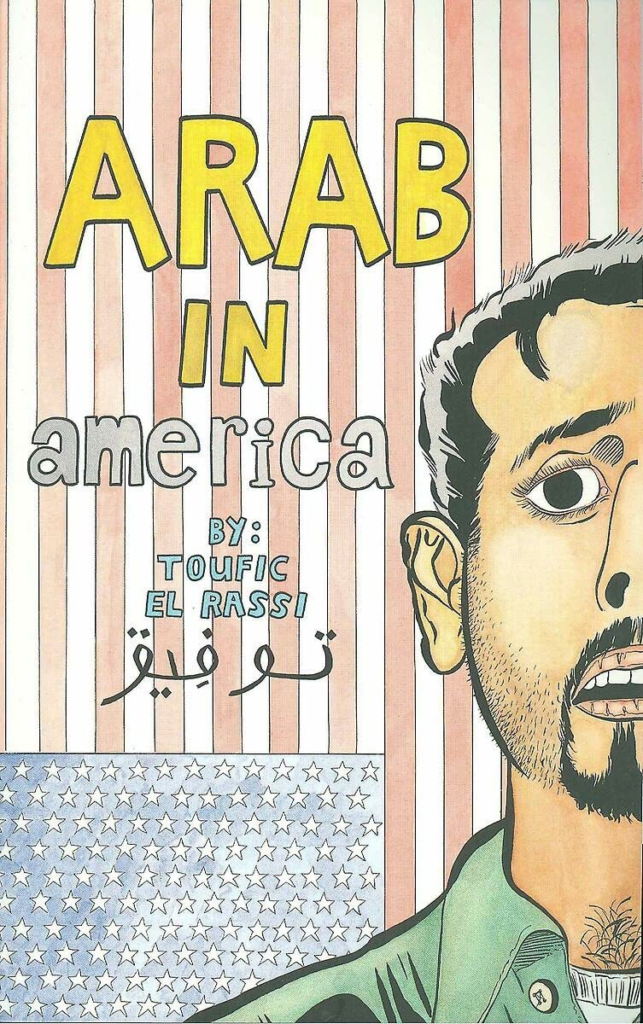
Arab in America is a graphic memoir that explores the author’s struggle with his Arab American identity amid racism and prejudice. Through personal stories and sharp insights, El Rassi depicts his experiences growing up in America, especially after 9/11, and critiques the negative stereotypes perpetuated by media. The book offers a personal yet historical look at the challenges of being Arab in America.
Poetry
Fady Joudah – Alight (2013)
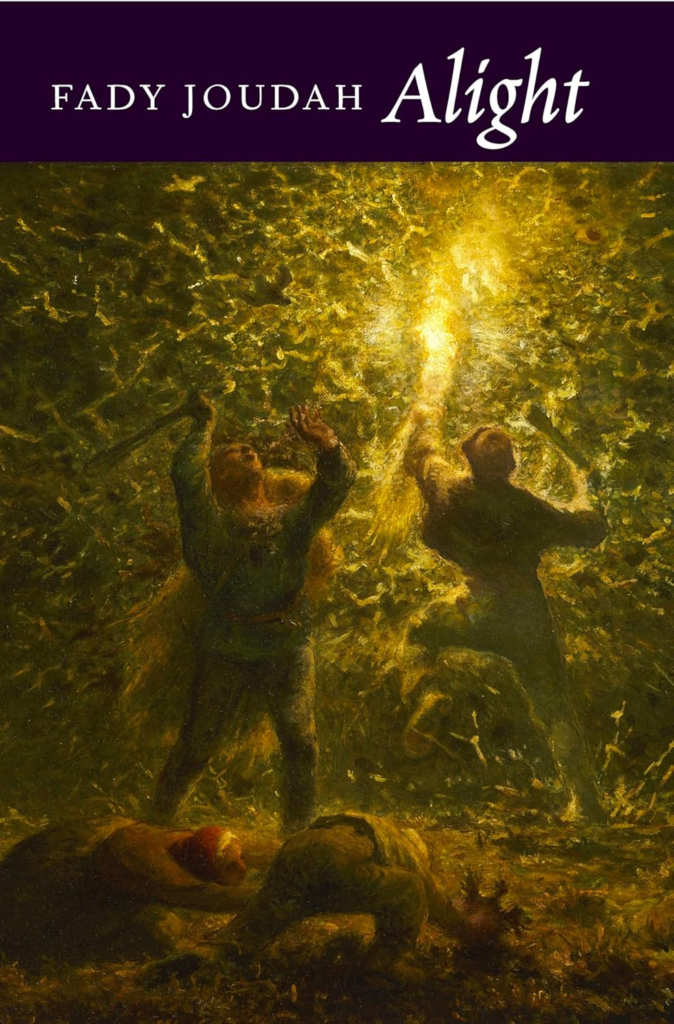
Alight is a poetry collection that seamlessly blends the personal with the mythic, intertwining the familiar and the estranging. As a father, husband, and physician, Joudah gives voice to the vulnerable, drawing on both American and Arabic poetic traditions. His work strikes a delicate balance between the intimate and the universal, drawing from his own experiences, including his time with Doctors Without Borders and his Palestinian heritage, to illuminate the human condition.
Fady Joudah – Footnotes in the Order of Disappearance (2018)
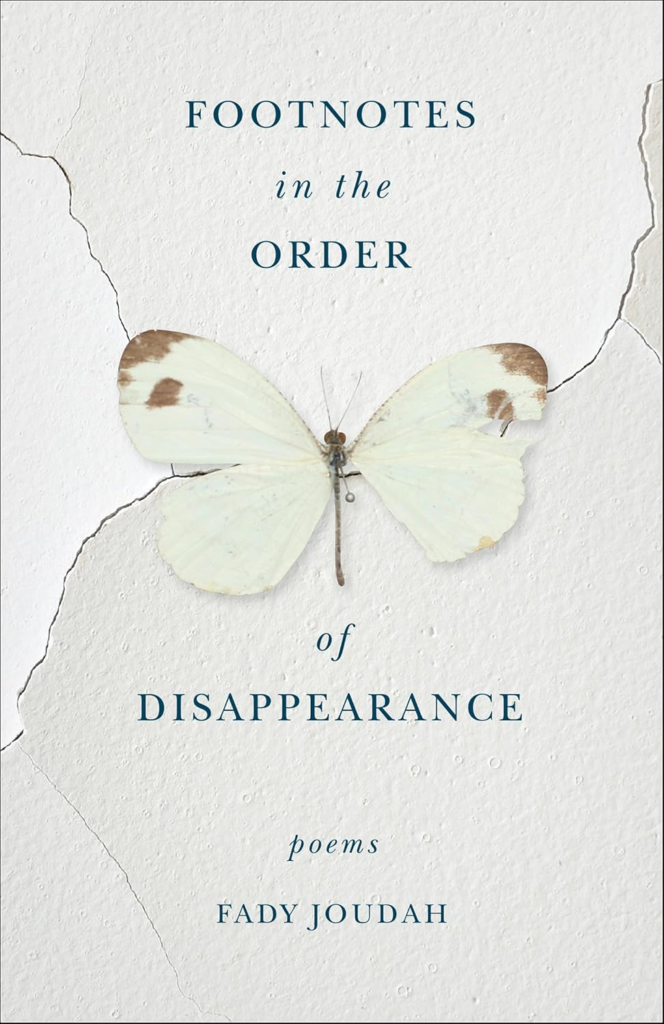
Footnotes in the Order of Disappearance is a collection of poems blending love, loss, and medicine. It celebrates both the beautiful and the painful, exploring themes of memory, history, and identity. In collaboration with Golan Haji, Joudah reflects on the body’s connection to past wounds and the spaces between languages. Rich and inventive, the collection offers a profound exploration of the human experience.
Hala Alyan – Atrium (2012)

Atrium is a striking debut poetry collection that combines powerful imagery with intense intimacy, exploring global issues through personal experiences. Awarded the 2013 Arab American Book of the Year Award for Poetry, Alyan’s poems have been praised for their emotional depth and sharp vision. The collection features vivid, enigmatic images and a passionate engagement with the world, marking Alyan as a unique new voice in contemporary poetry.
Hayan Charara – Something Sinister (2016)
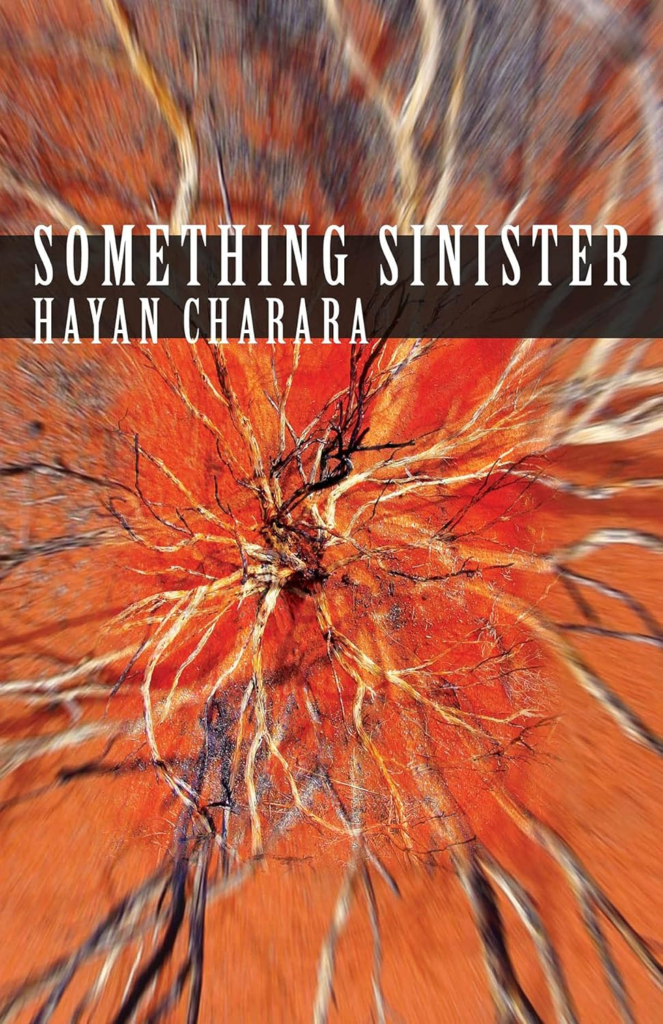
In Something Sinister, Charara explores the complex intersections of personal, political, and cultural tensions. Through vivid and diverse subjects, including a father’s obsession with Muhammad Ali and a suicide bomber’s impact, the poems tackle themes of doubt, regret, and conflict with emotional depth and inventive language.
Khaled Mattawa – Tocqueville (2010)
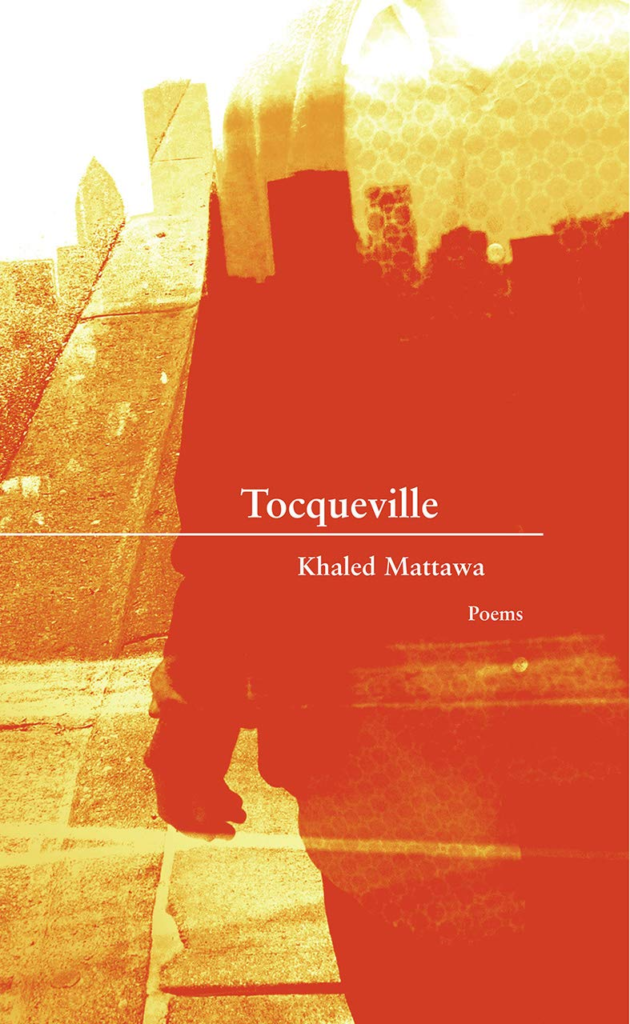
In Tocqueville, Khaled Mattawa combines personal lyricism, social critique, and experimental forms to address the complexities of modern global culture. With urgency and invention, Mattawa explores cultural and social issues. His work reflects a bold, ongoing reckoning with contemporary society.
Lauren Camp – One Hundred Hungers (2016)
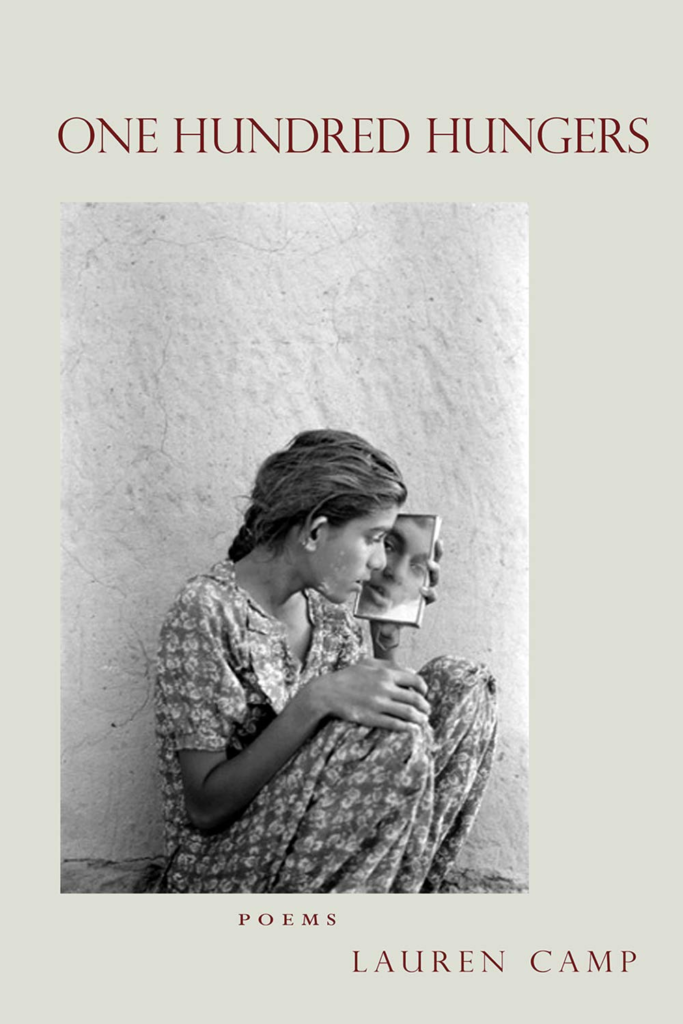
One Hundred Hungers delves into the lives of a first-generation Arab American girl and her Jewish-Iraqi father. Through stories of food, ritual, immigration, and adaptation, the collection reflects on Camp’s father’s childhood in 1940s Baghdad, amidst growing ethnic and religious tensions. It also captures the persistence of family culture through Sabbath dinners in her grandparents’ American home, intertwining past and present narratives.
Lena Khalaf Tuffaha – Water & Salt (2017)
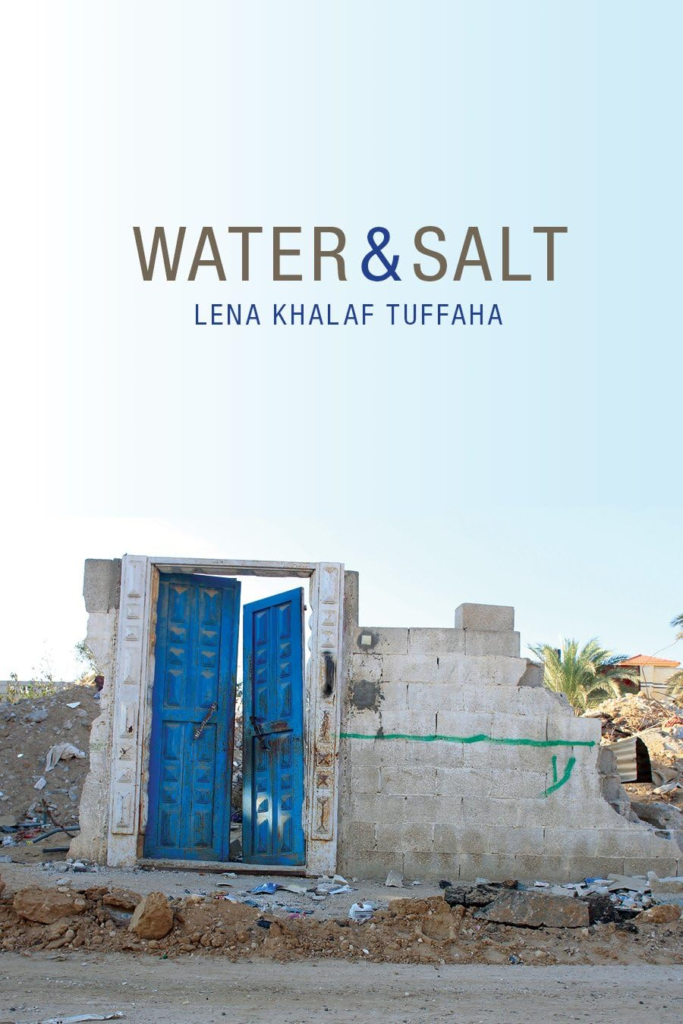
Lena Khalaf Tuffaha’s debut, Water & Salt, sings in the voices of people ravaged by cycles of war and news coverage. These poems alternately rage, laugh, celebrate and grieve, singing in the voices of people ravaged by cycles of war and news coverage and inviting the reader to see the human lives lived beyond the headlines.
Lubna Safi – Your Blue and the Quiet Lament (2022)
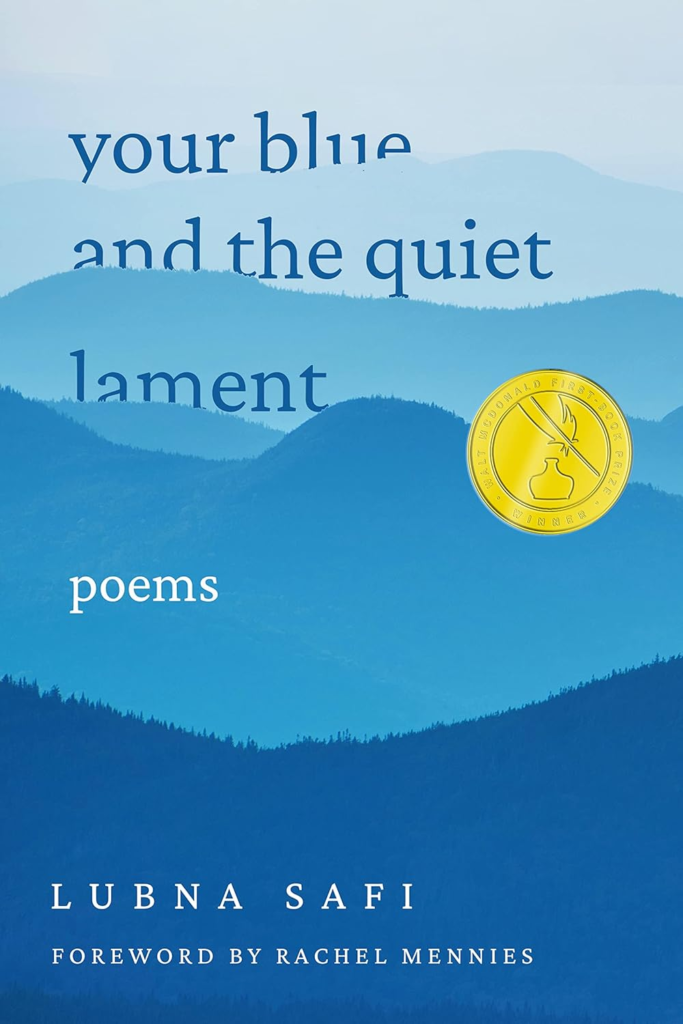
Your Blue and the Quiet Lament reflects on the grief following her cousin’s murder by the Syrian state, conveyed through a long-distance phone call. The poems weave a narrative of arrest, imprisonment, and torture in Syria, while also exploring the complexities of diaspora and personal loss. Lubna’s work contends with grief through layers of distance—geographical, emotional, and temporal—capturing the echoes of loss with vivid, multifaceted imagery.
Marwa Helal – Invasive Species (2019)
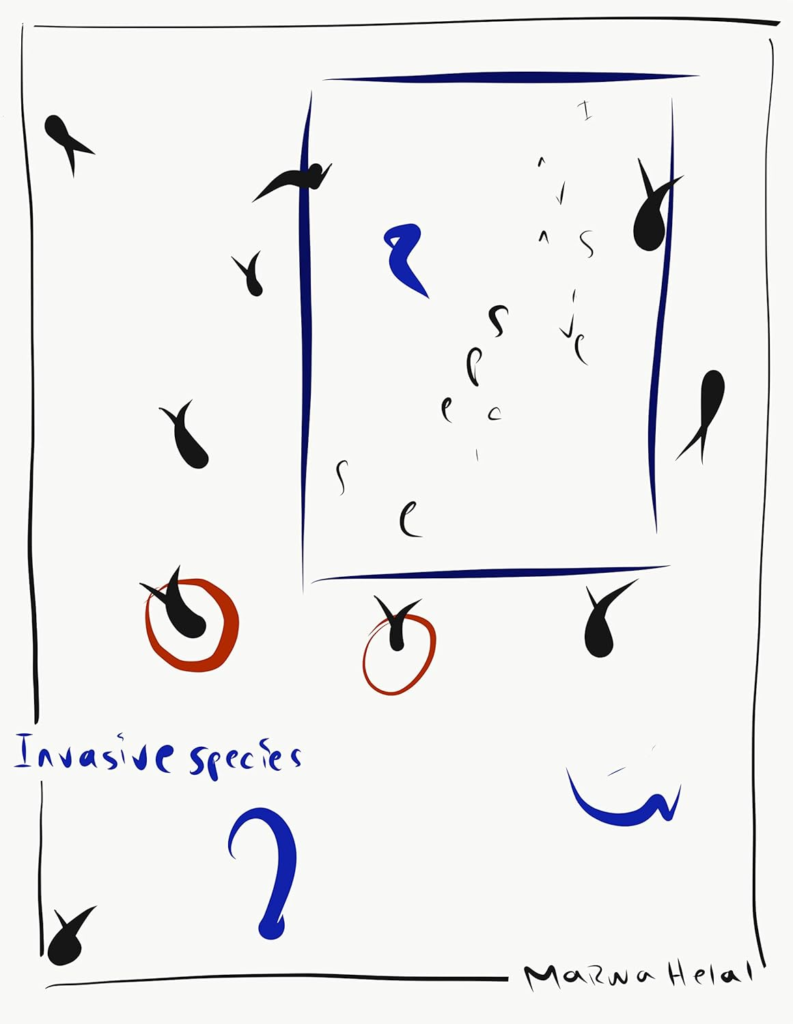
Invasive Species is a collection of politically charged poems that amplify the voices of migrants and refugees, exploring themes of displacement and the impact of immigration policies. Through powerful, empathetic language, Helal blurs borders, urging readers to engage with the human side of these urgent issues.
Matthew Shenoda – Tahrir Suite: Poems (2014)
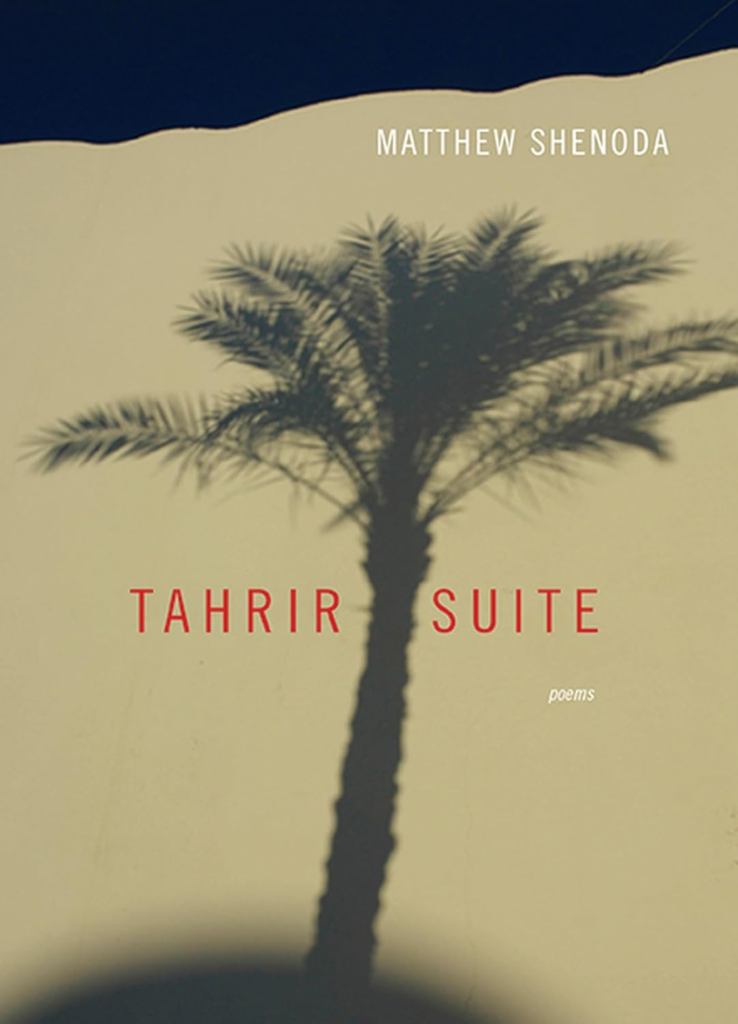
Tahrir Suite is a book-length poem that explores immigration, diaspora, and the evolving sense of home in the 21st century. Inspired by events in Egypt, the poem follows two Egyptians navigating borders, cultures, and political upheaval, as their lives in the U.S. shift alongside revolutionary change in their homeland. It reflects on the complex nature of identity and belonging in a rapidly changing world.
Mohja Kahf – E-mails from Scheherazad (2003)
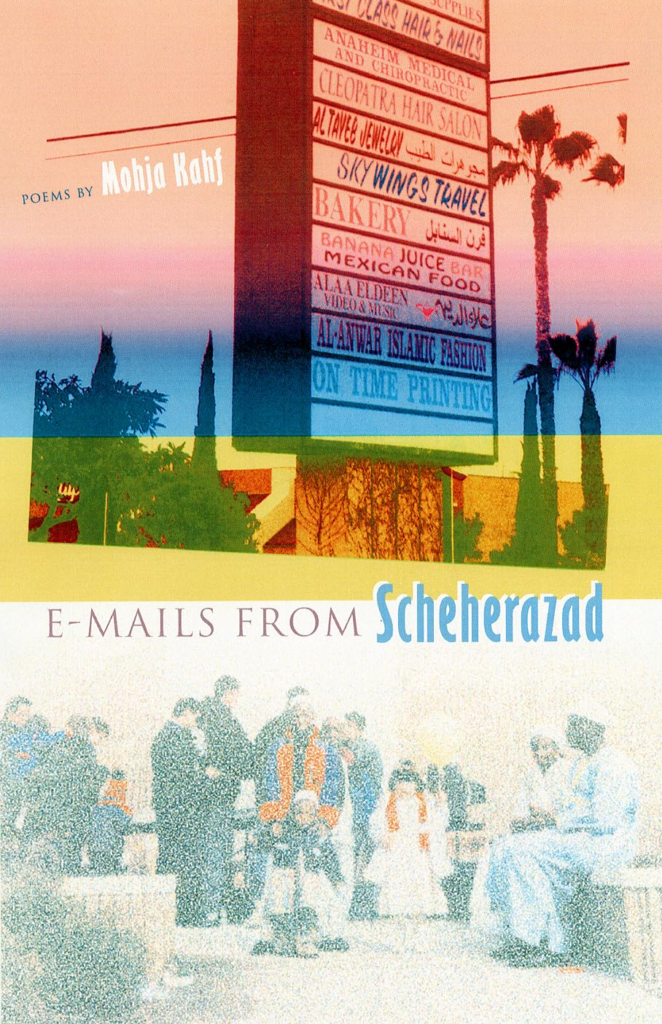
Mohja Kahf’s poetry explores the Arab American immigrant experience, blending Muslim rituals and suburban Americana. Her work tackles themes of ethnicity, gender, and religion while also delving into universal topics like family, identity, and empowerment. With both energy and poignancy, Kahf’s poems offer a powerful voice for immigrant women. She is a professor at the University of Arkansas.
Mohja Kahf – Hagar Poems (2016)
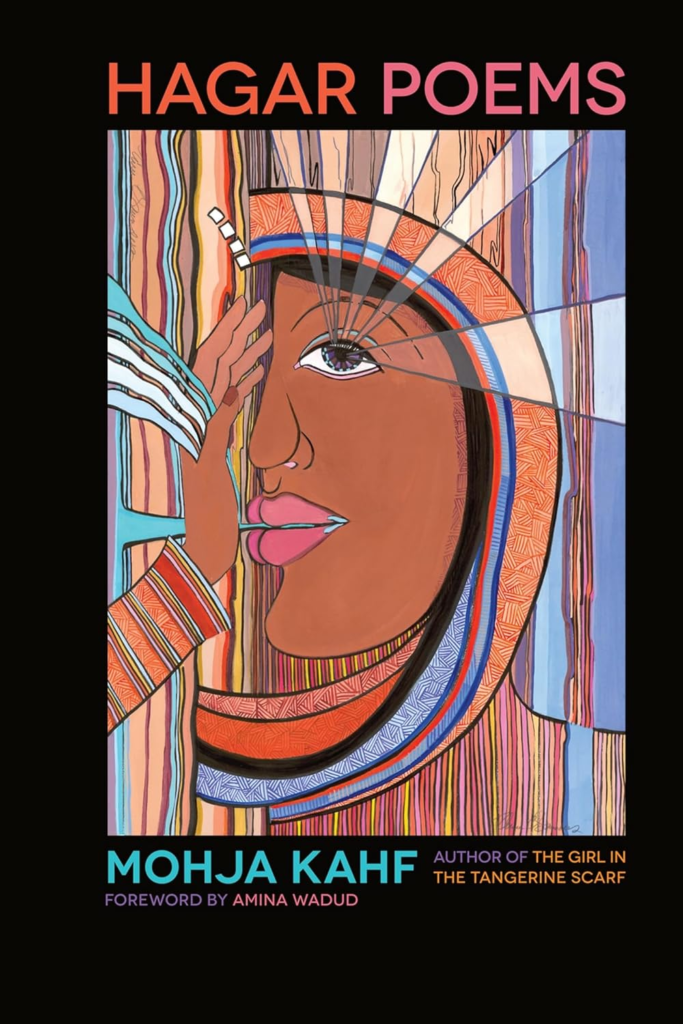
Hagar Poems reimagines the story of Hagar, Abraham, and Sarah, focusing on themes of family, faith, and the relationships between women, men, and God. The collection blends historical, religious, and contemporary figures, offering a unique exploration of Middle Eastern heritage and women’s roles in these narratives. Through dramatic monologues and reconfigured stories, Kahf delves into complex themes with wit, poignancy, and a fresh perspective.
Naomi Shihab Nye – Words Under the Words (1994)
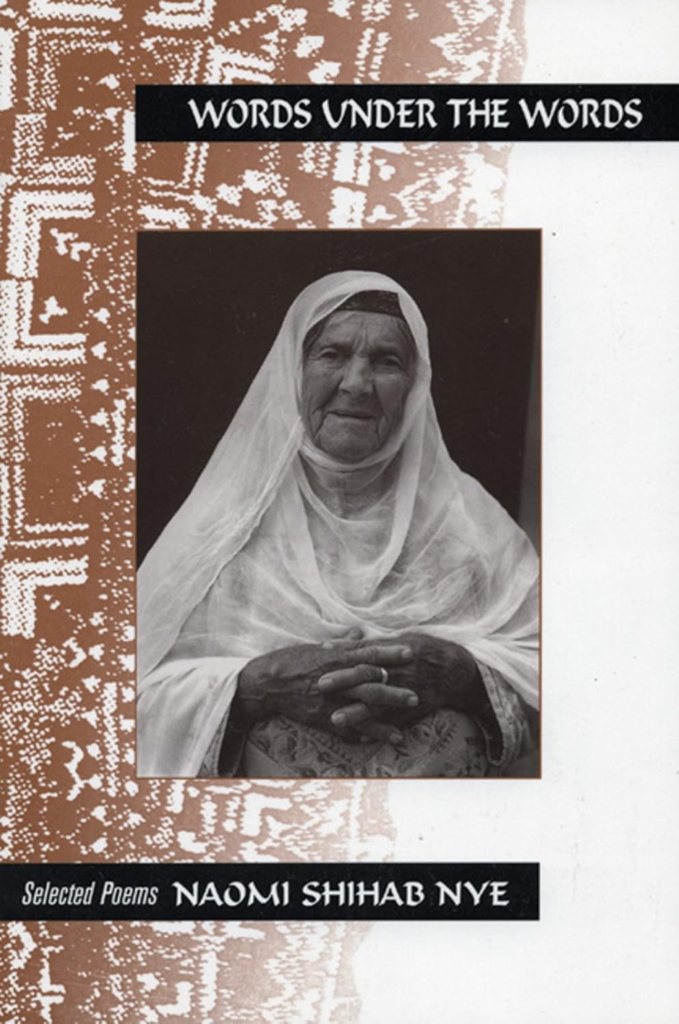
Words Under the Words is a collection of Naomi Shihab Nye’s finest poems, drawn from her earlier works Different Ways to Pray, Yellow Glove, and Hugging the Jukebox. Nye explores human experiences with clarity, grace, and a gentle, authoritative voice. The poems touch on themes of spirituality, politics, and personal reflection, drawing from her Palestinian heritage and offering thought-provoking questions.
Philip Metres – A Concordance of Leaves (2013)

A Concordance of Leaves vividly portrays the resilience of the Palestinian spirit. Through tender and luminous language, Metres weaves personal and collective narratives, reflecting on love, history, and the search for harmony. The work is praised for its emotional depth and the exploration of the interconnectedness of people.
Philip Metres – Sand Opera (2015)
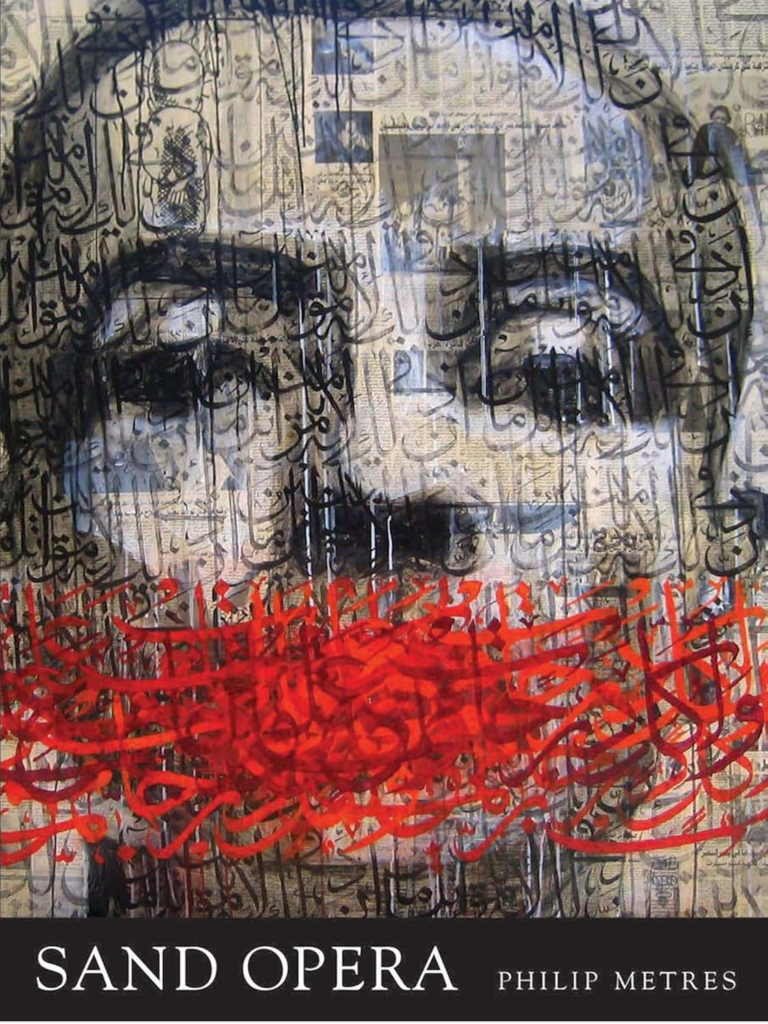
Sand Opera is a powerful collection that amplifies the voices of the unheard in a post-9/11 world. Through polyvocal poems and redacted text, Metres explores the dehumanizing effects of war, particularly on Arab Americans, while challenging societal silencing and violence. The collection speaks to the urgency of political poetry in a world shaped by conflict, reflecting on our shared humanity amidst ongoing war.
Safia Elhillo – The January Children (2017)
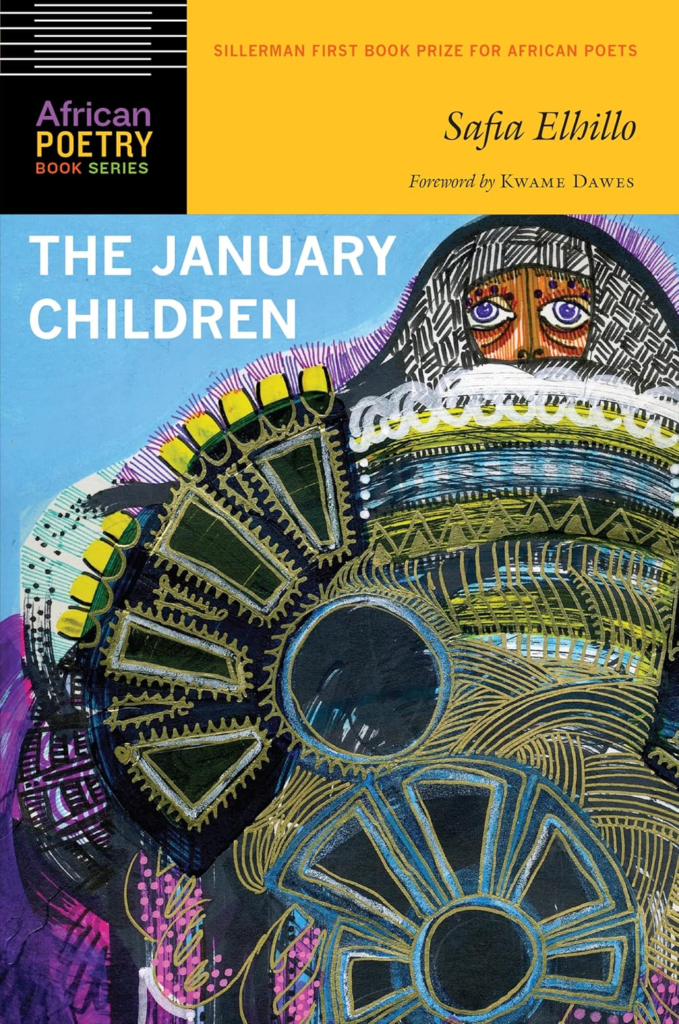
The January Children explores displacement, identity, and postcolonial themes through the lens of Sudanese history and the poet’s own hyphenated identity. The collection reflects on the tensions between Arabness and Africanness, the impact of colonialism, and the search for belonging. Through personal and mythological narratives, Elhillo challenges accepted borders and reimagines the concept of home.
Samuel Hazo – And the Time Is (2012)
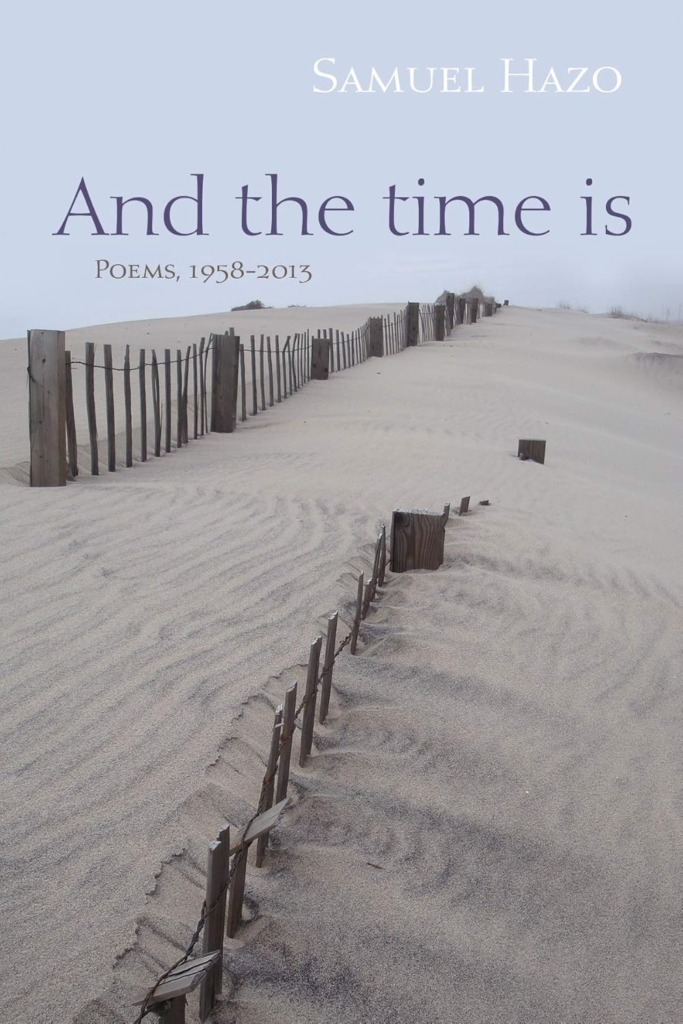
And the Time Is is a reflective collection that spans themes of love, family, and aging. With poems from his extensive career, it reaffirms Hazo’s place as a significant poet of his generation. The work includes pieces previously featured in prominent publications, highlighting his enduring and compelling voice in contemporary poetry.
Suheir Hammad – breaking poems (2008)

Breaking Poems redefines language with bold, explosive verse. Using “break” as a theme, Hammad blends Arabic and English, creating a unique vernacular that reflects the struggles of identity, culture, and survival. Her poems capture the pain and resilience of the Palestinian experience, infused with a rhythmic energy influenced by jazz and free music.
Threa Almontaser – The Wild Fox of Yemen (2021)
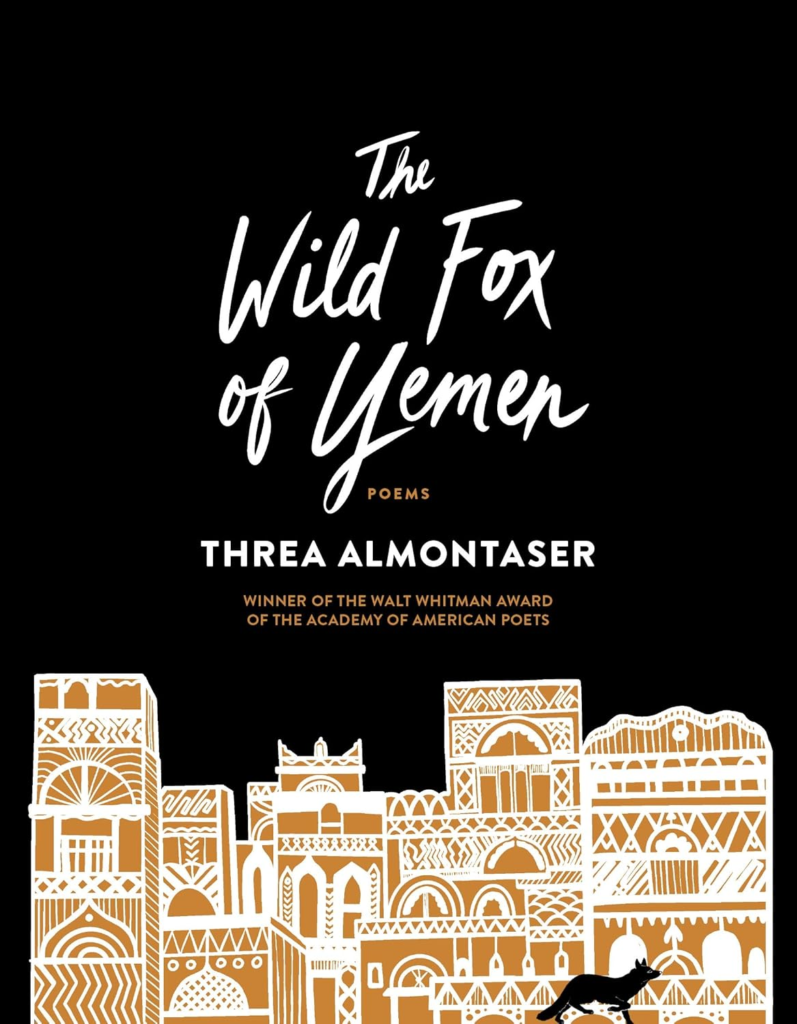
The Wild Fox of Yemen, winner of the Walt Whitman Award, explores identity, language, and survival. With sharp lyricism, Almontaser reflects on being a young Muslim woman in New York after 9/11, while paying tribute to Yemen and its culture. Through polyvocal poems, she navigates the tension between cultures, mistranslation, and history, blending rebellion, tenderness, and resilience to create a powerful portrait of diaspora and self-discovery.
Zaina Alsous – A Theory of Birds (2019)
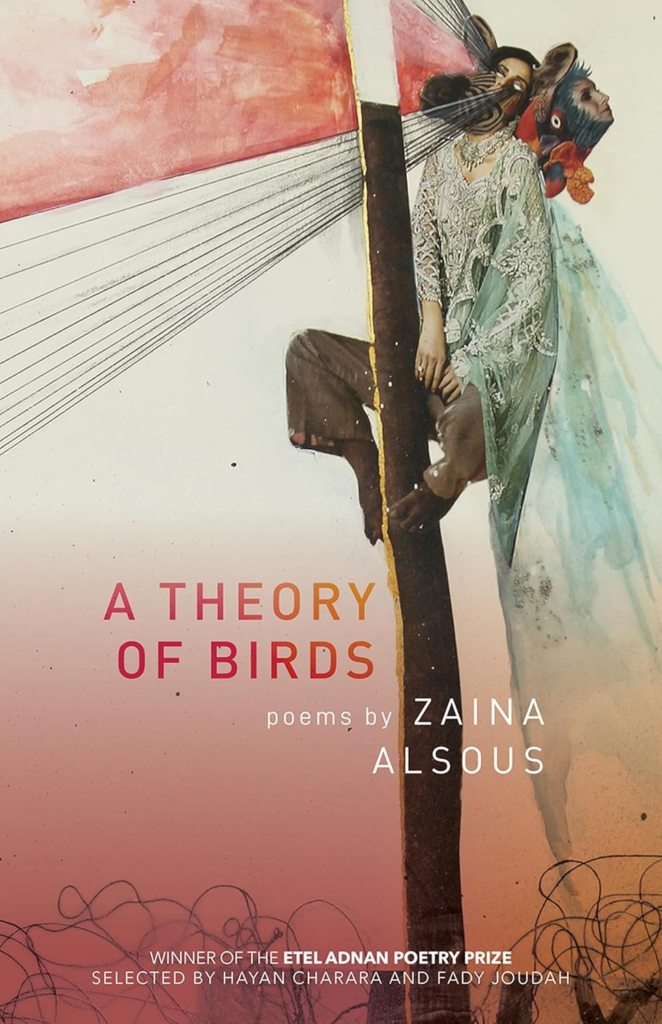
In A Theory of Birds, Zaina Alsous, winner of the 2019 Etel Adnan Poetry Prize, intertwines memory, history, and critical theory to explore the layered intersections of identity, violence, and colonialism. Using the metaphor of extinct birds, Alsous examines how categorization, both ecological and racial, serves as a tool of domination and erasure. The collection pushes against these boundaries, offering a poetry that advocates for decolonization of both mind and body.
Zeina Hashem Beck – O (2022)
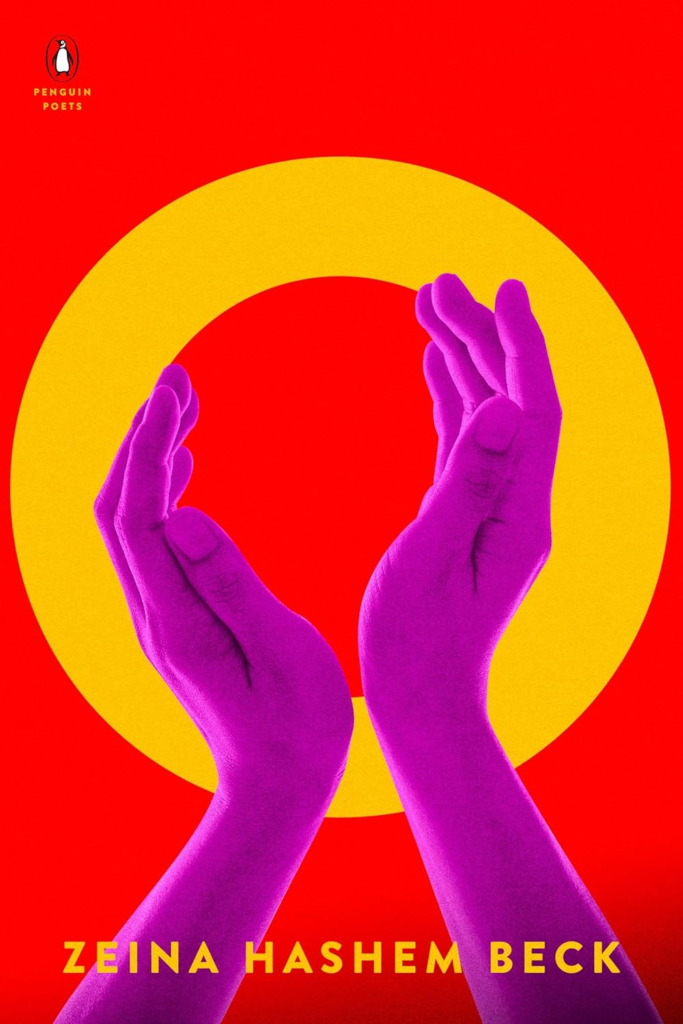
O by Zeina Hashem Beck is a powerful collection that blends the sacred and the profane. With formal innovation and a deep exploration of language, identity, and faith, Beck examines themes of exile, home, motherhood, and memory, using both English and Arabic to challenge and redefine boundaries.
Arwa Almasaari is a scholar, writer, and editor with a Ph.D. in English, specializing in Arab American studies. She often writes about inspirational figures, children’s literature, and celebrating diversity. You can contact her at arwa_phd@outlook.com
Check out our blog here!









